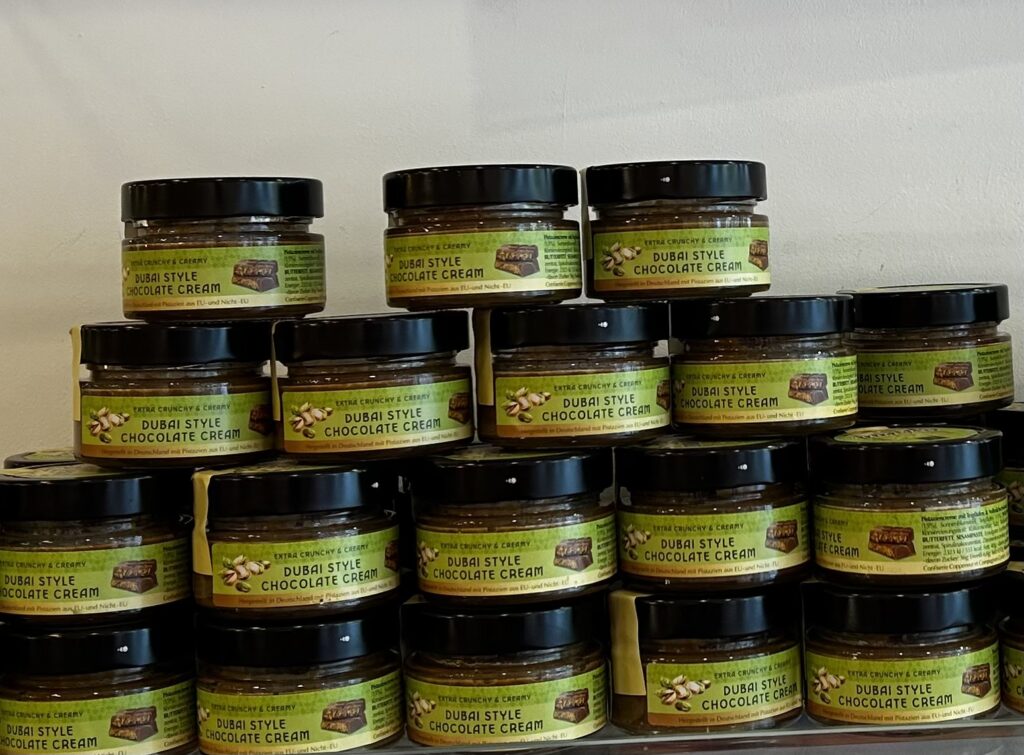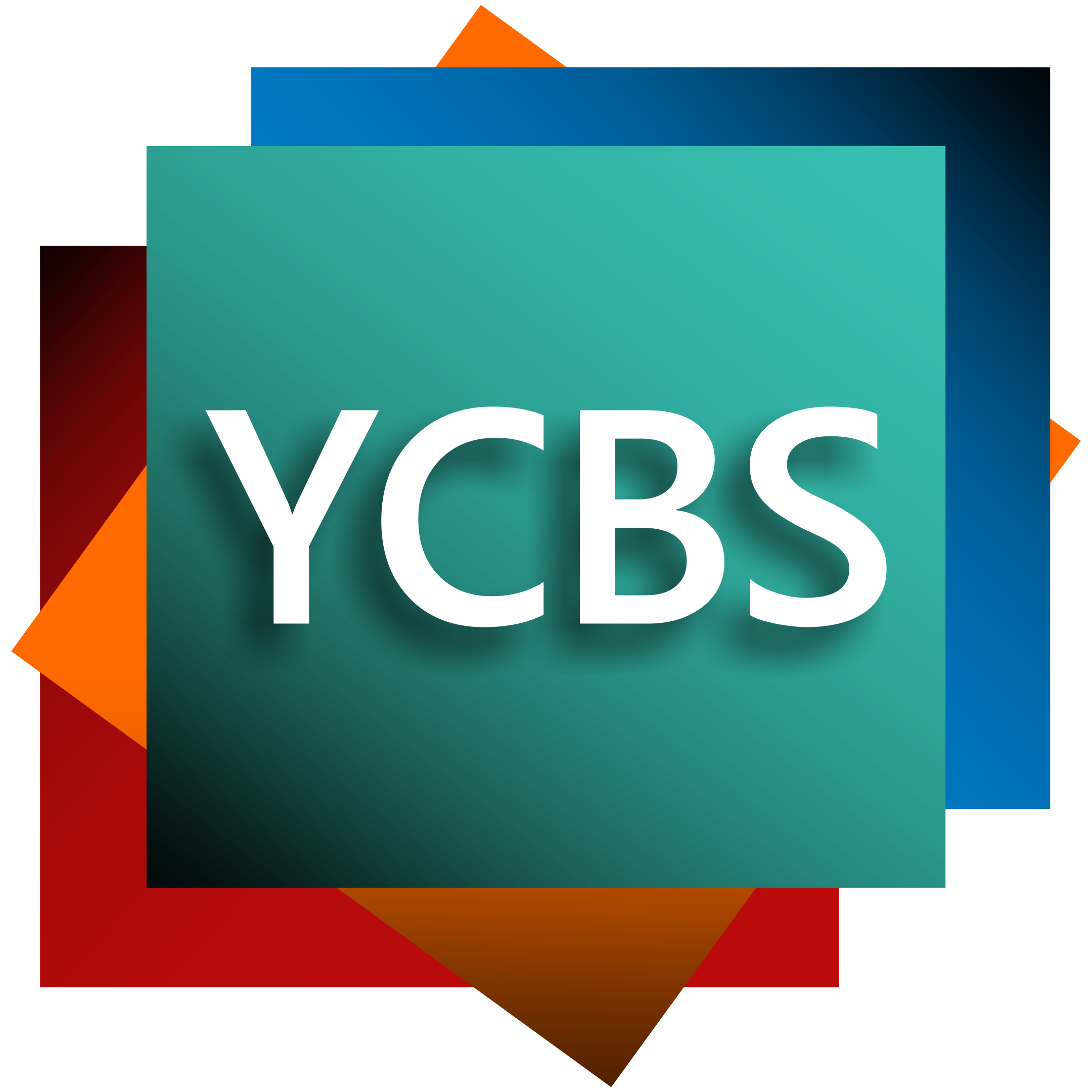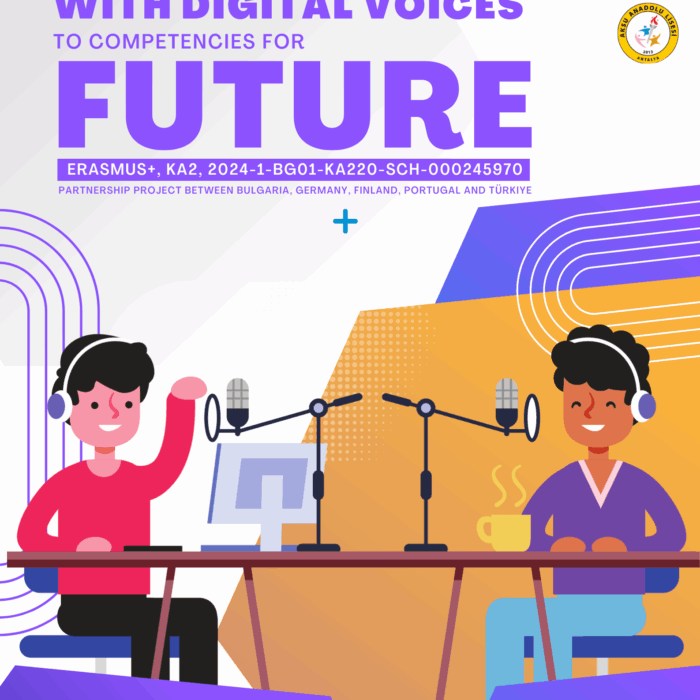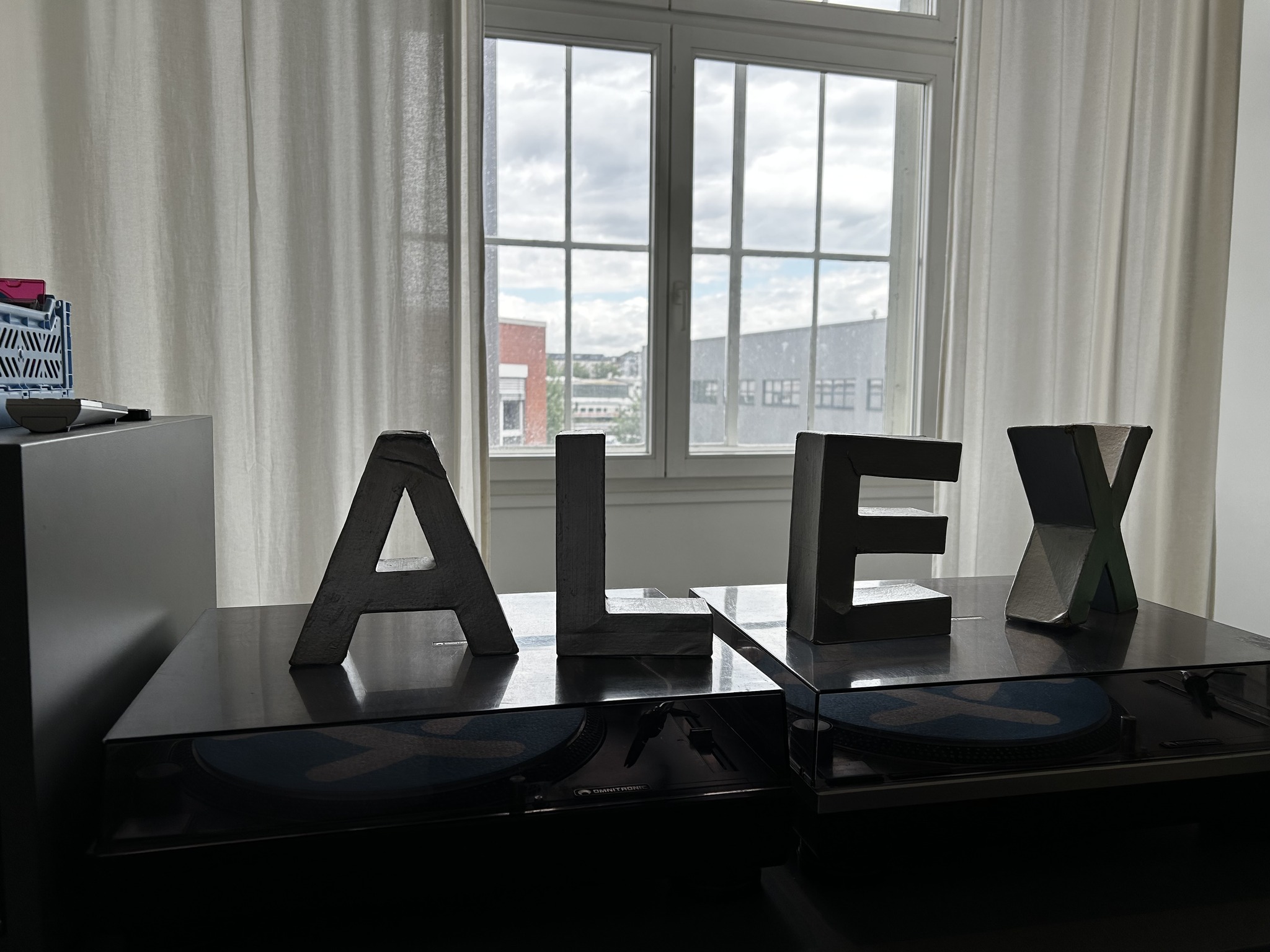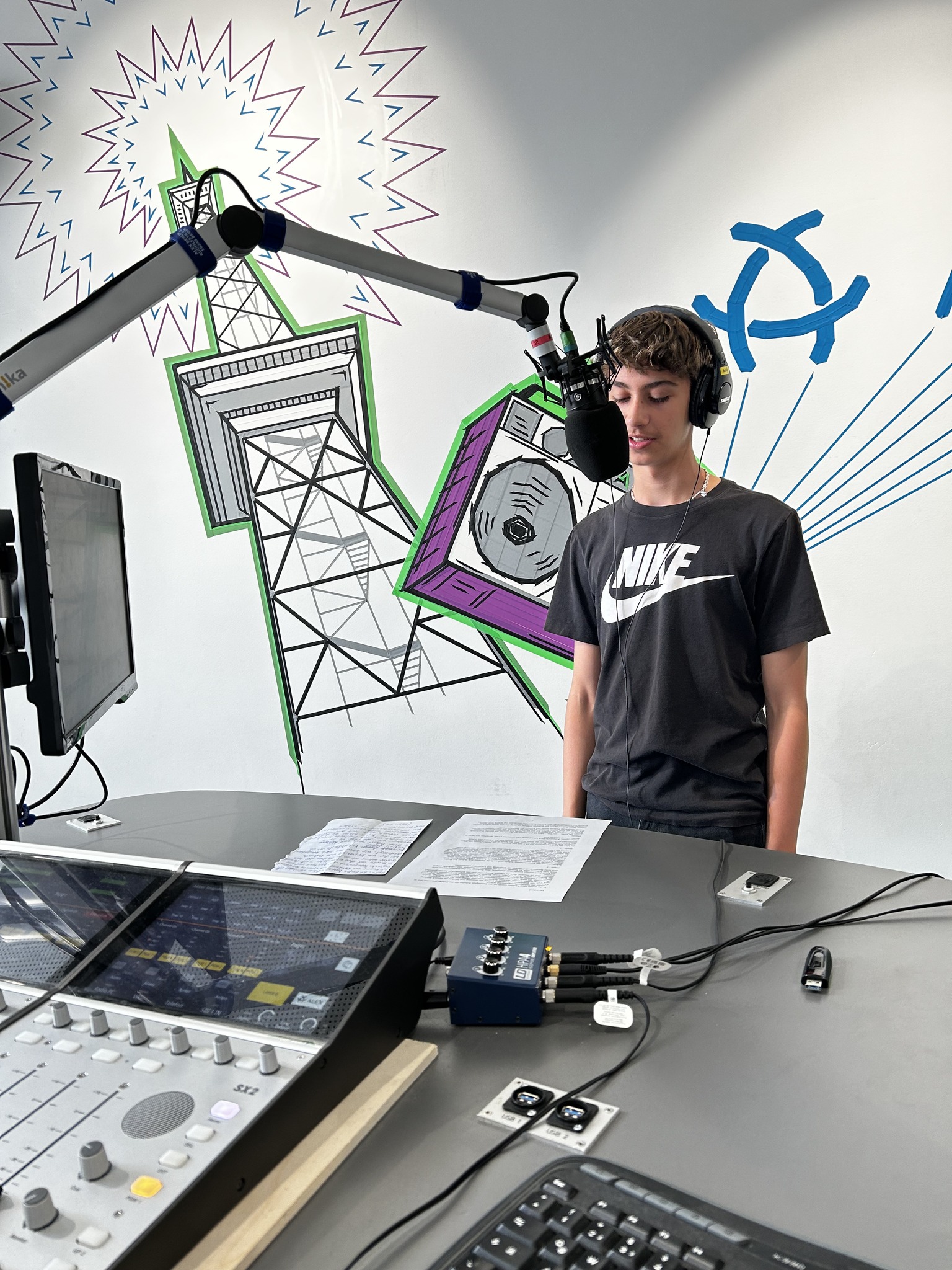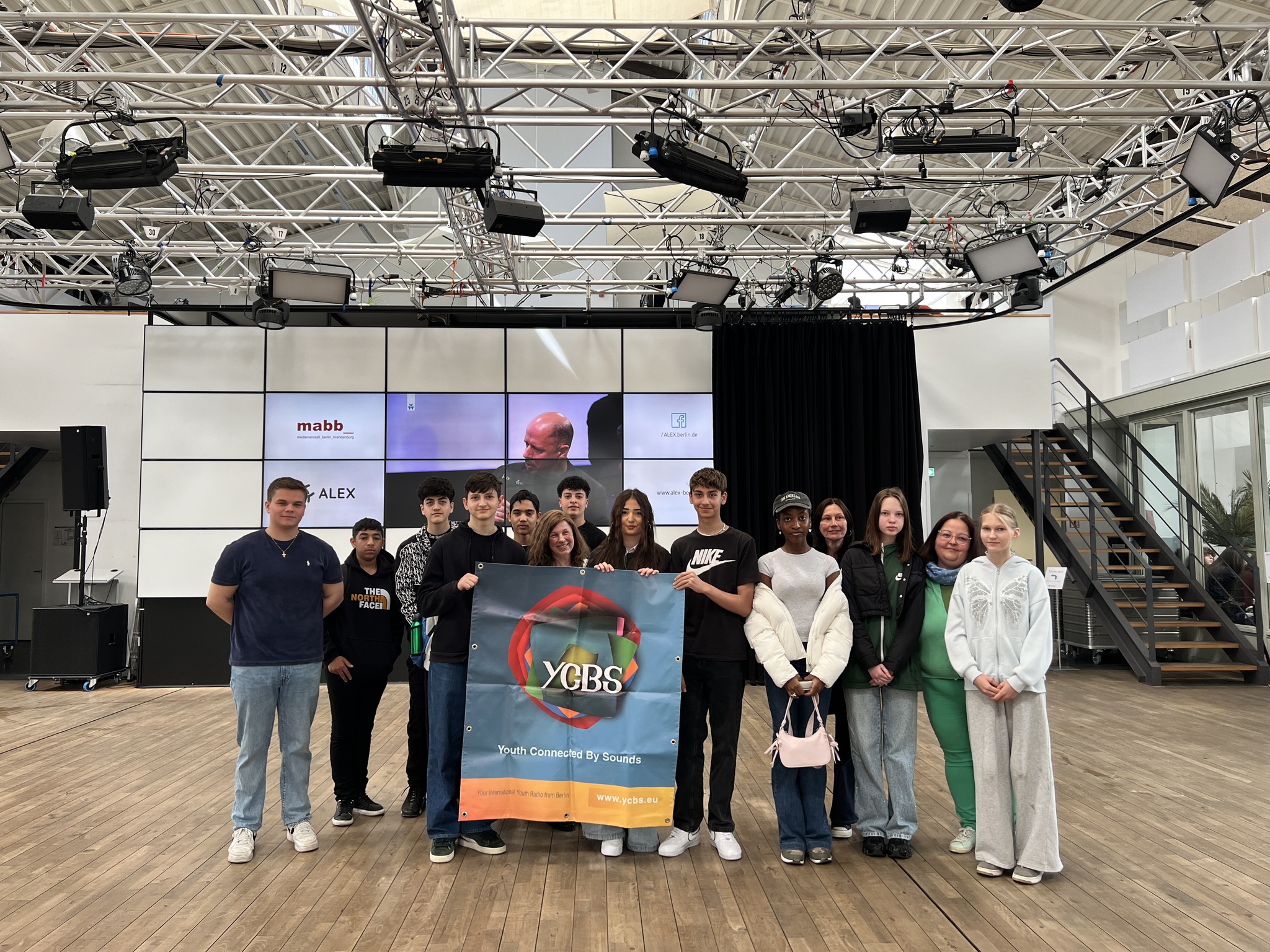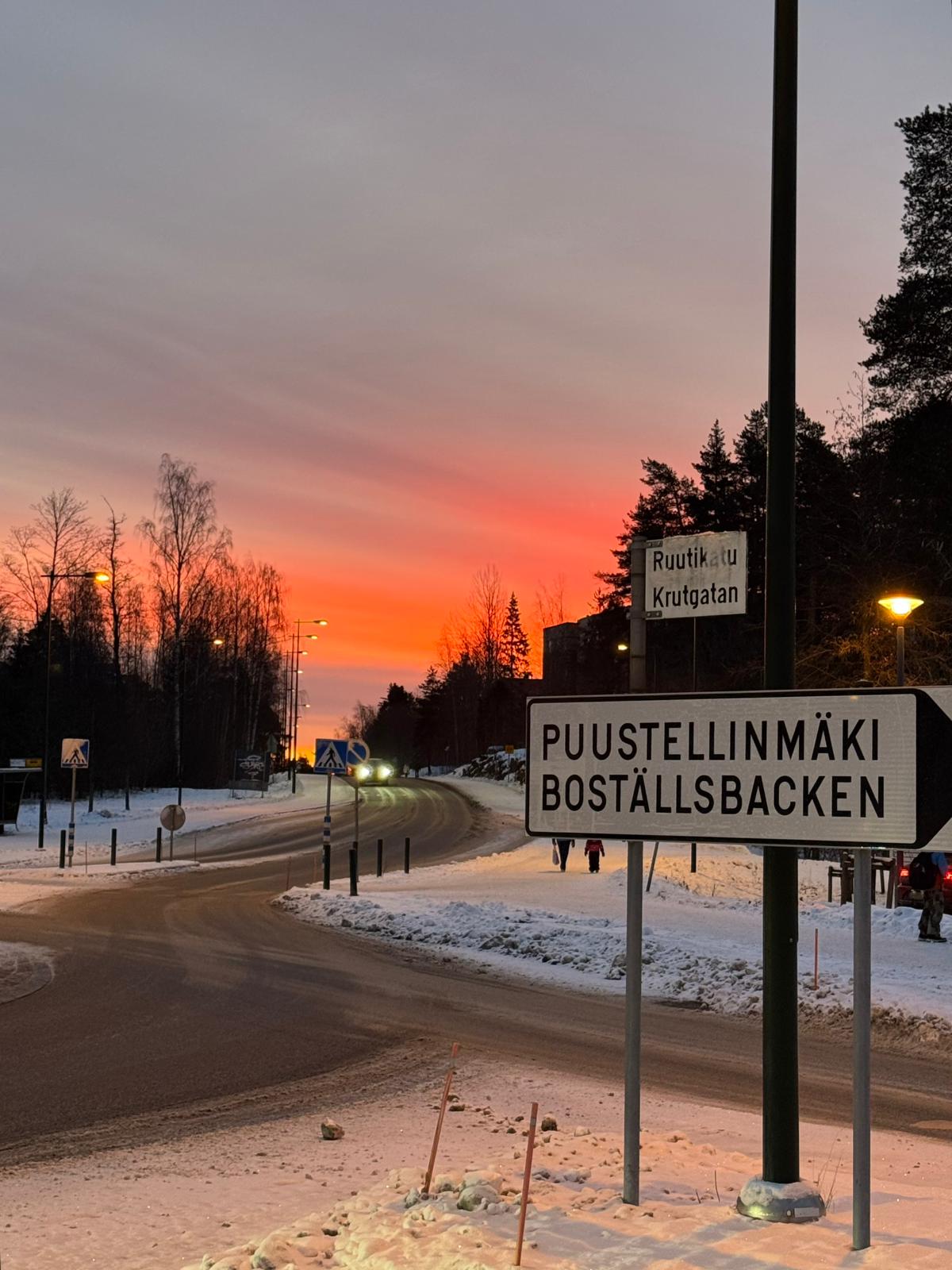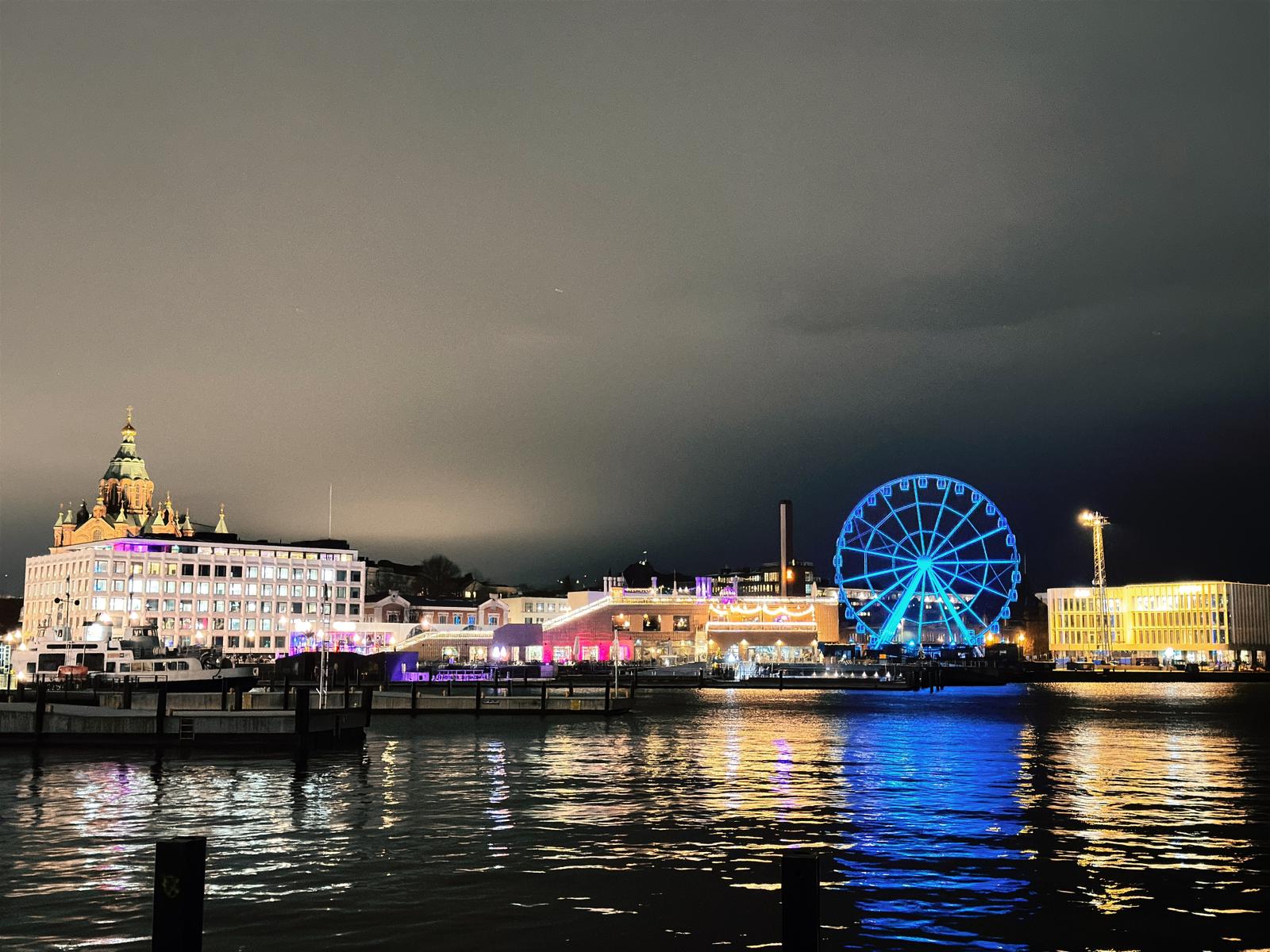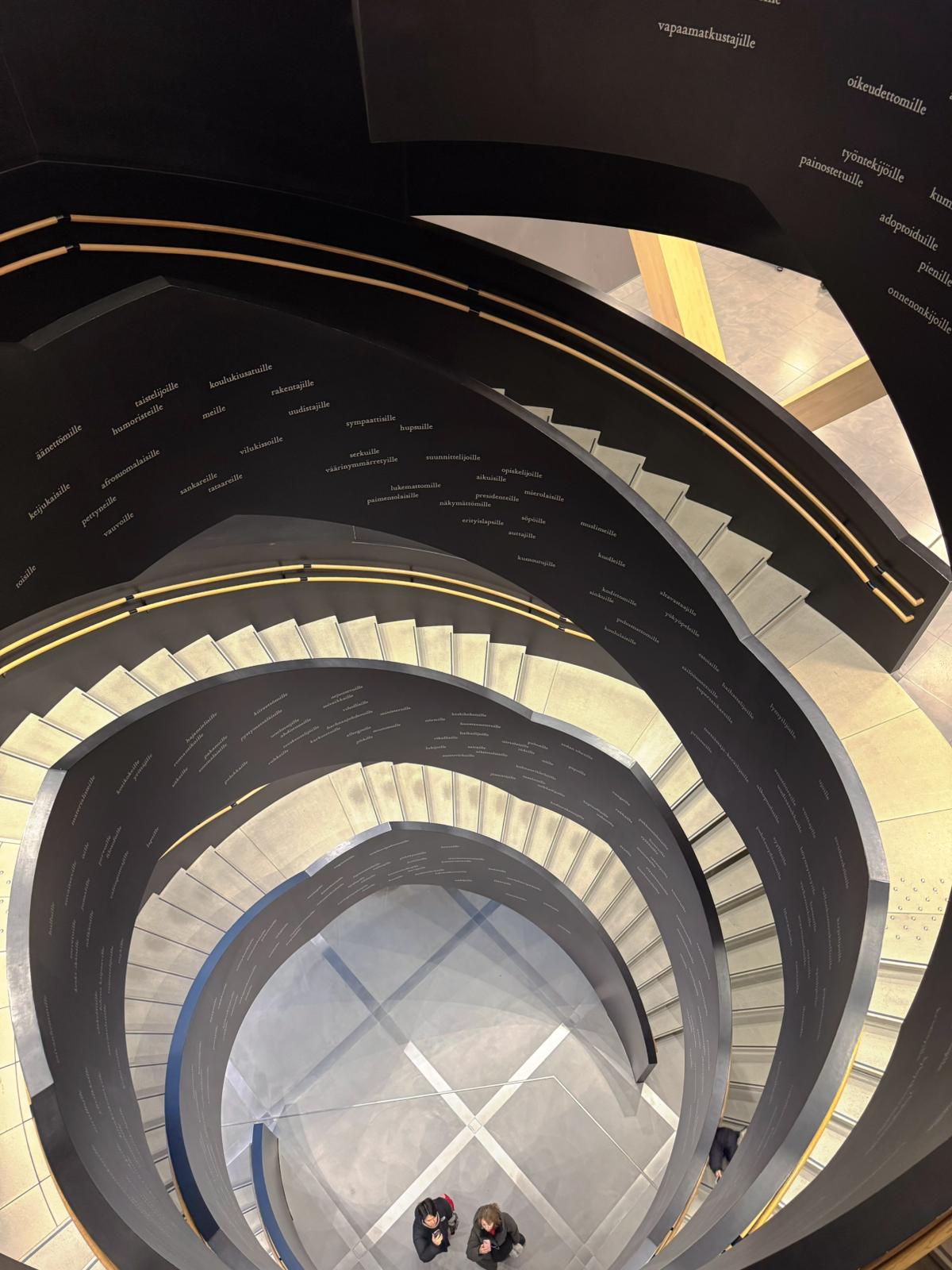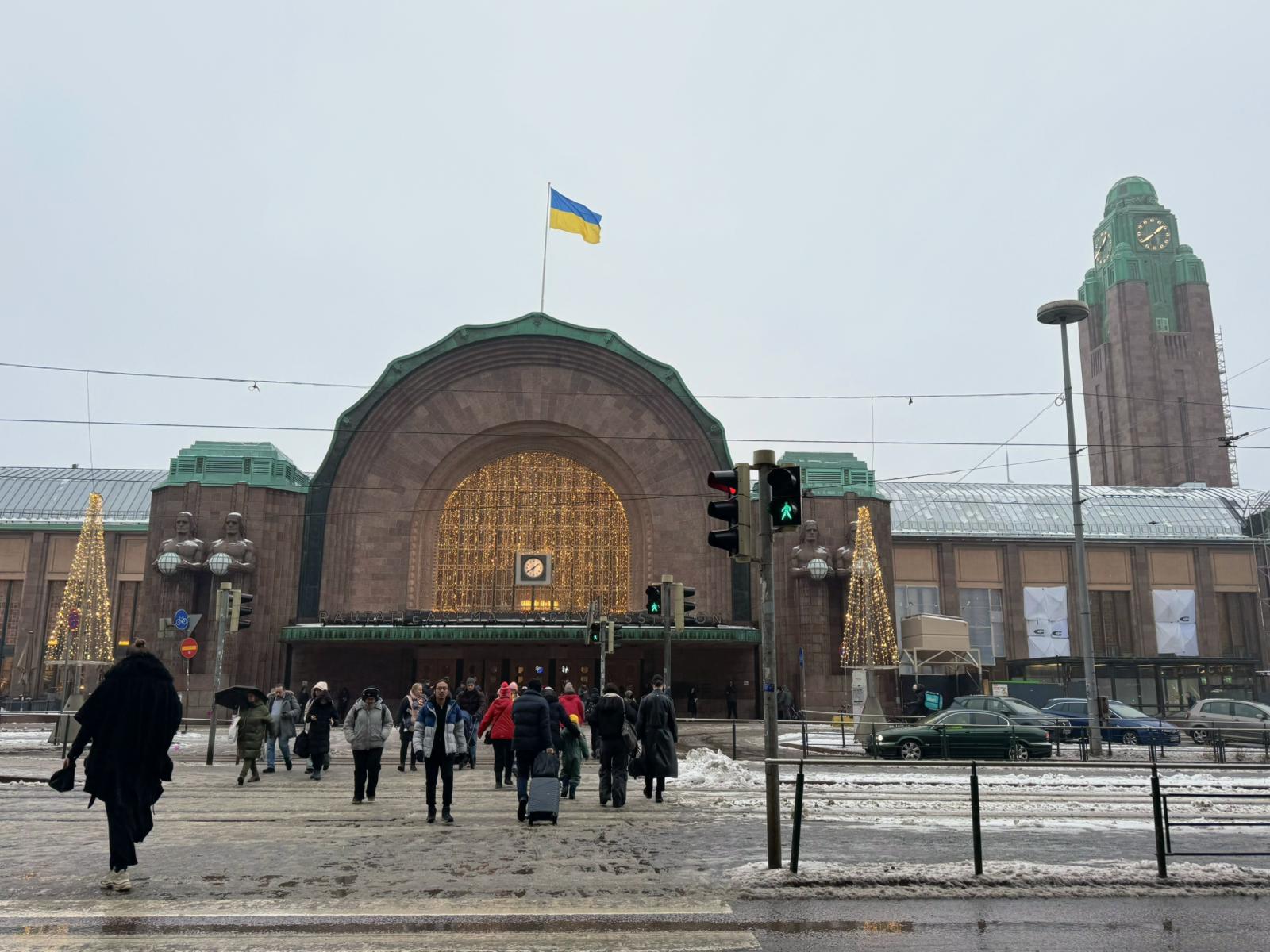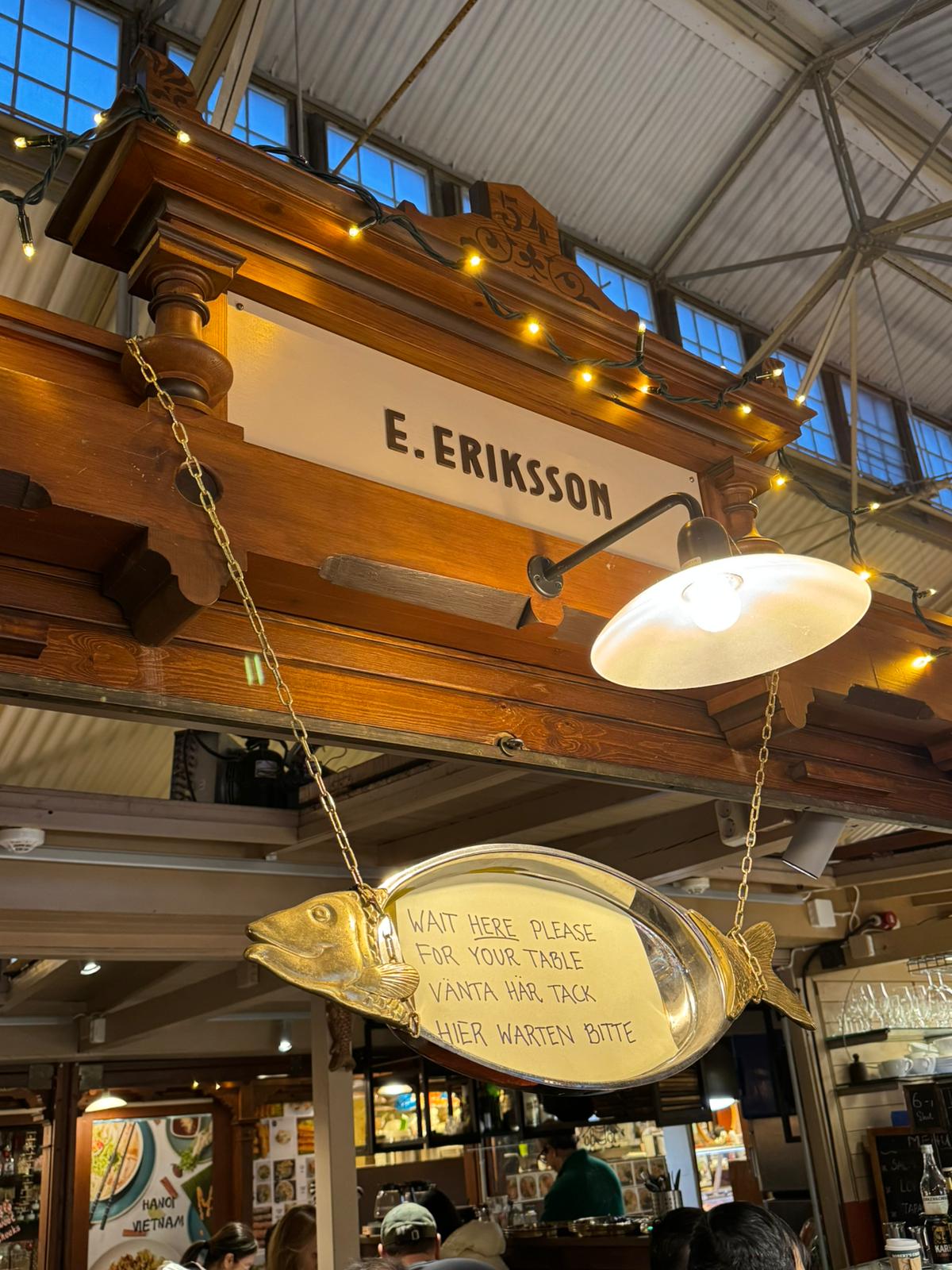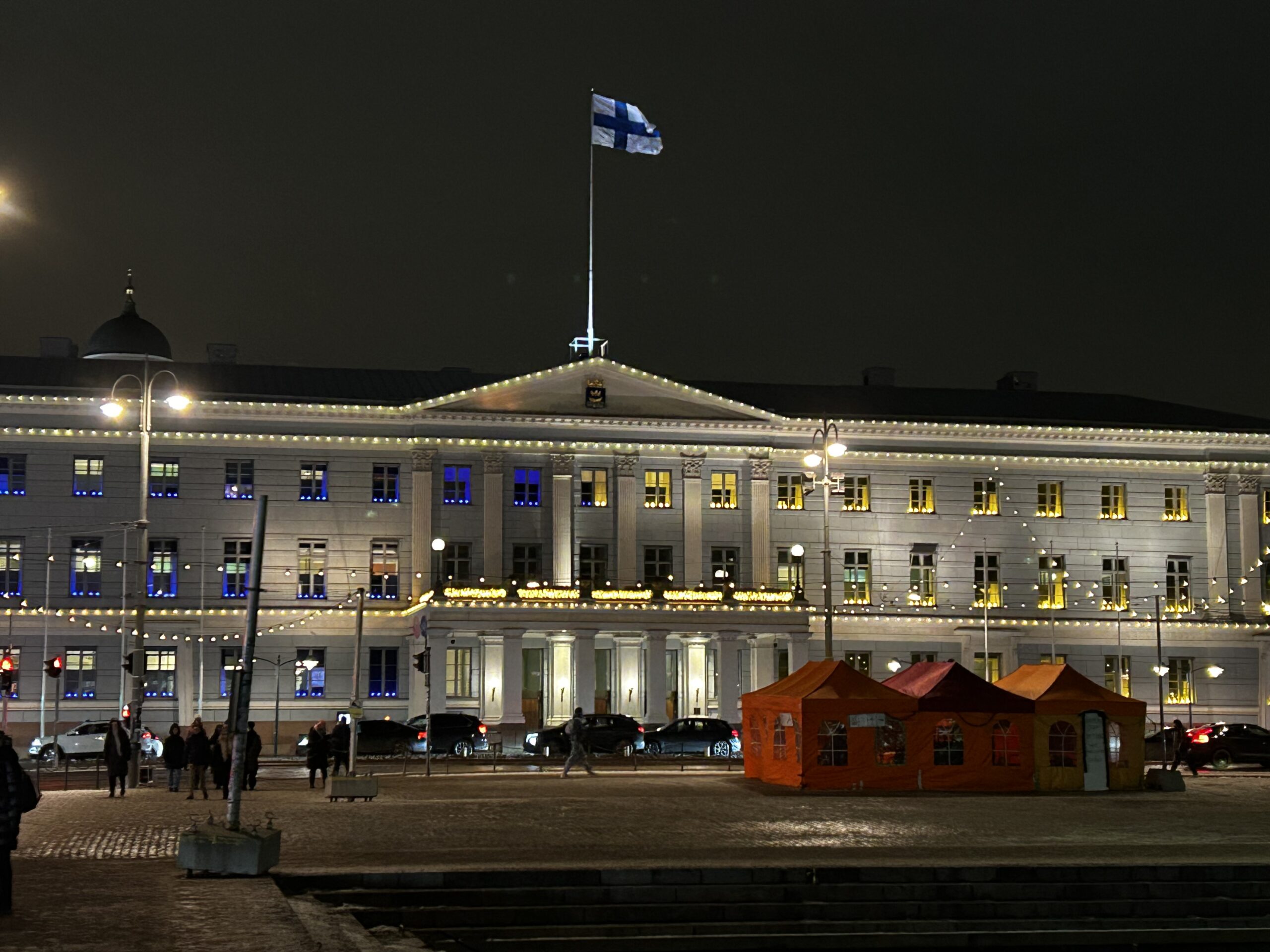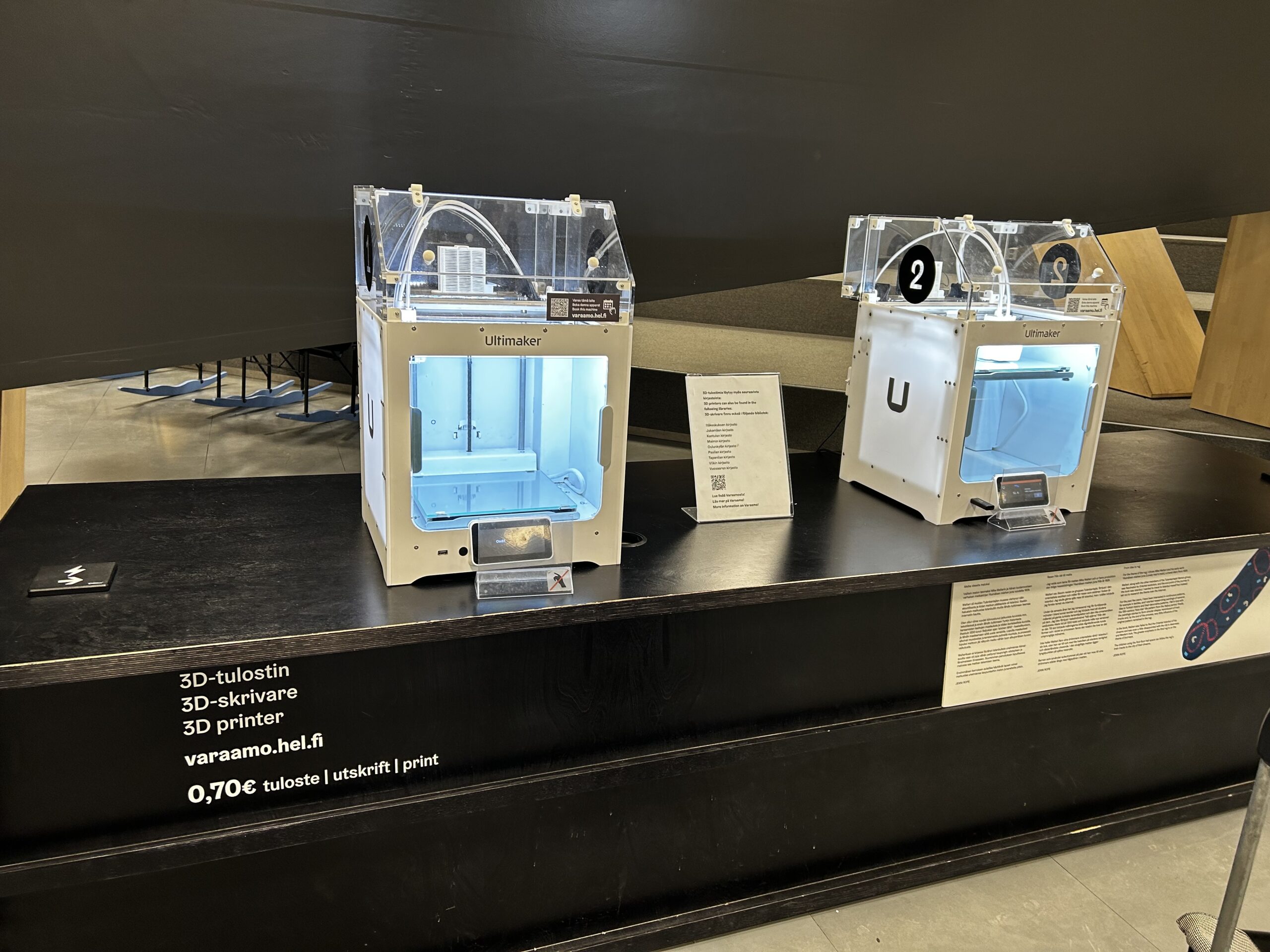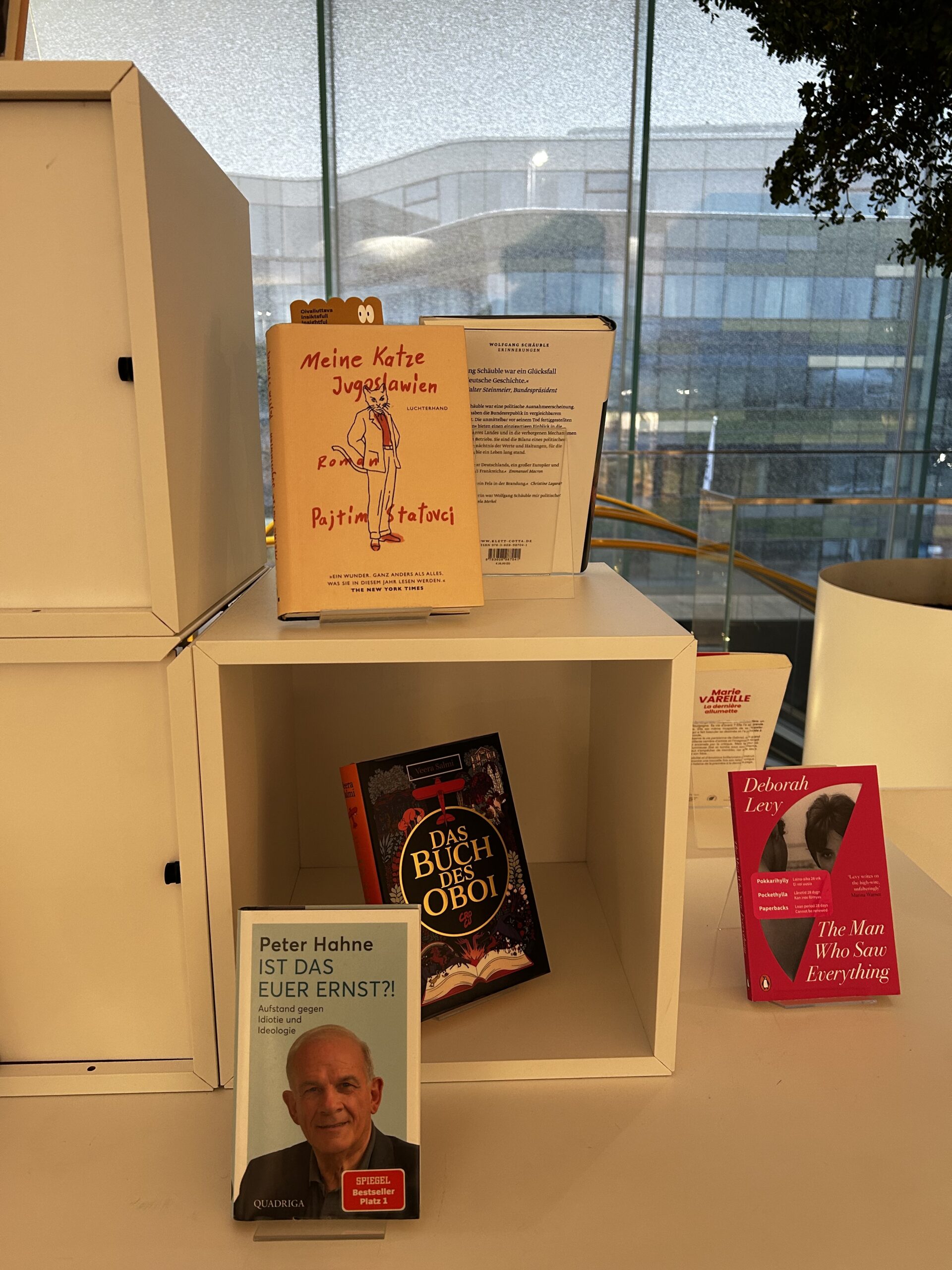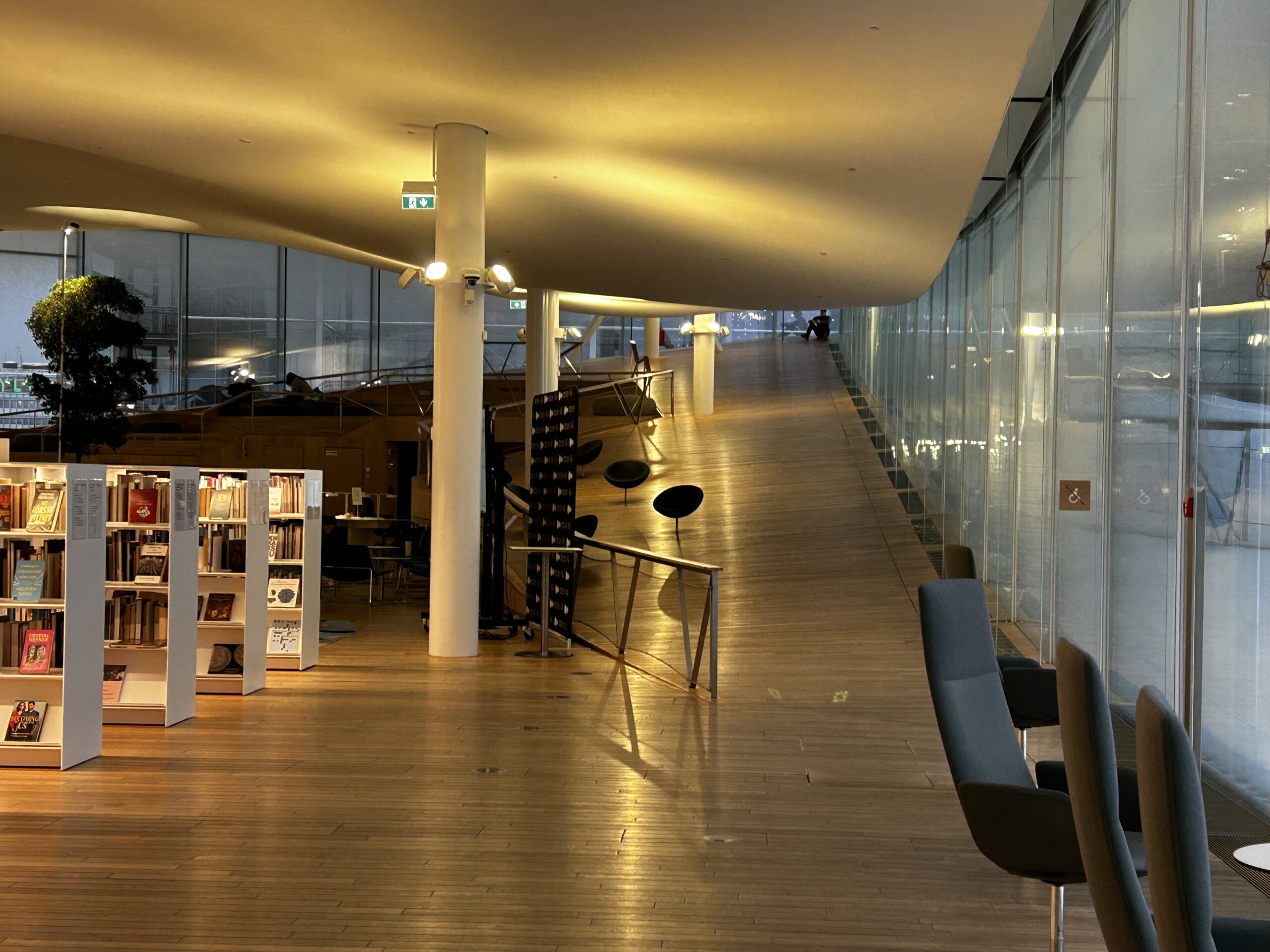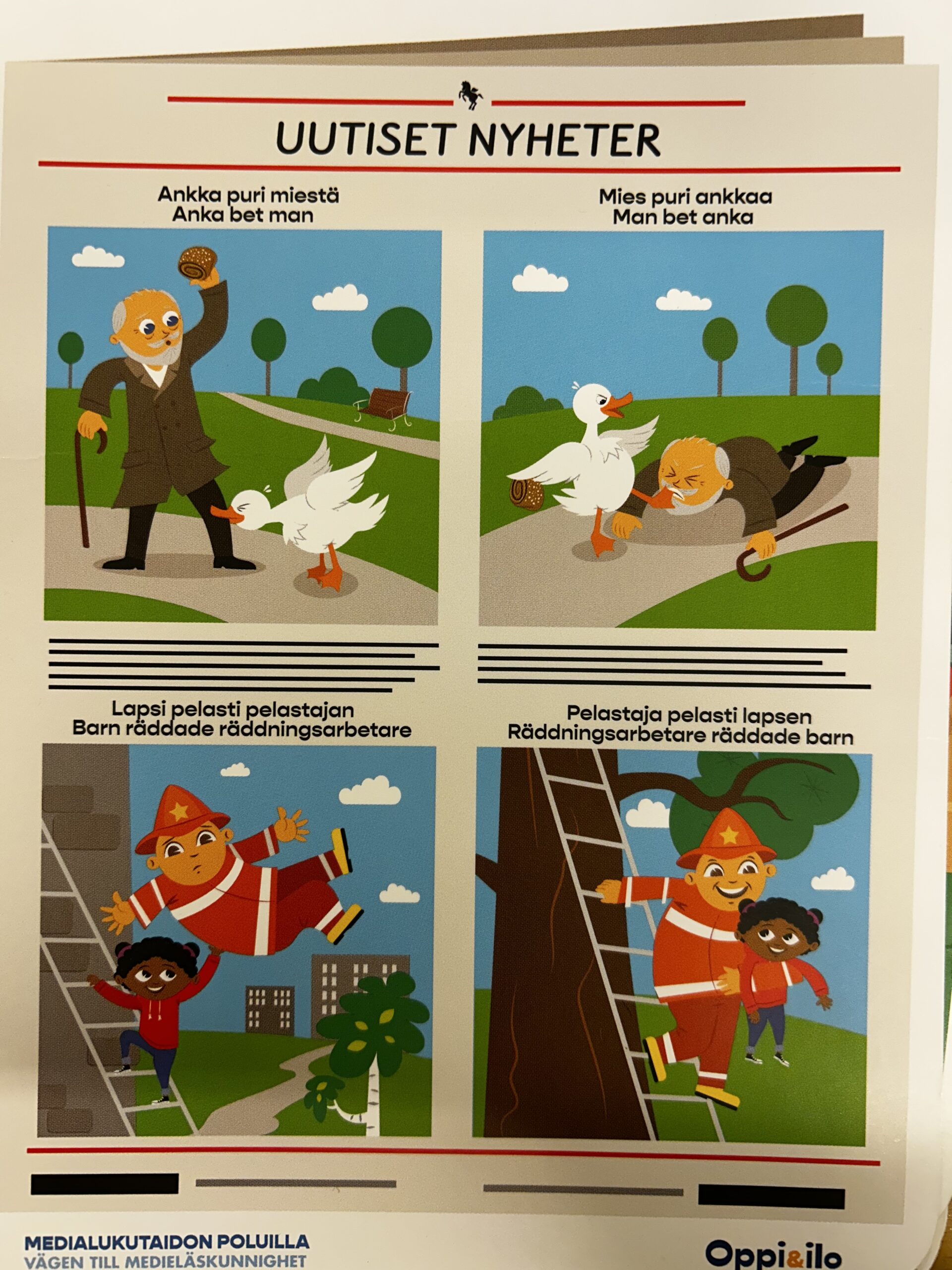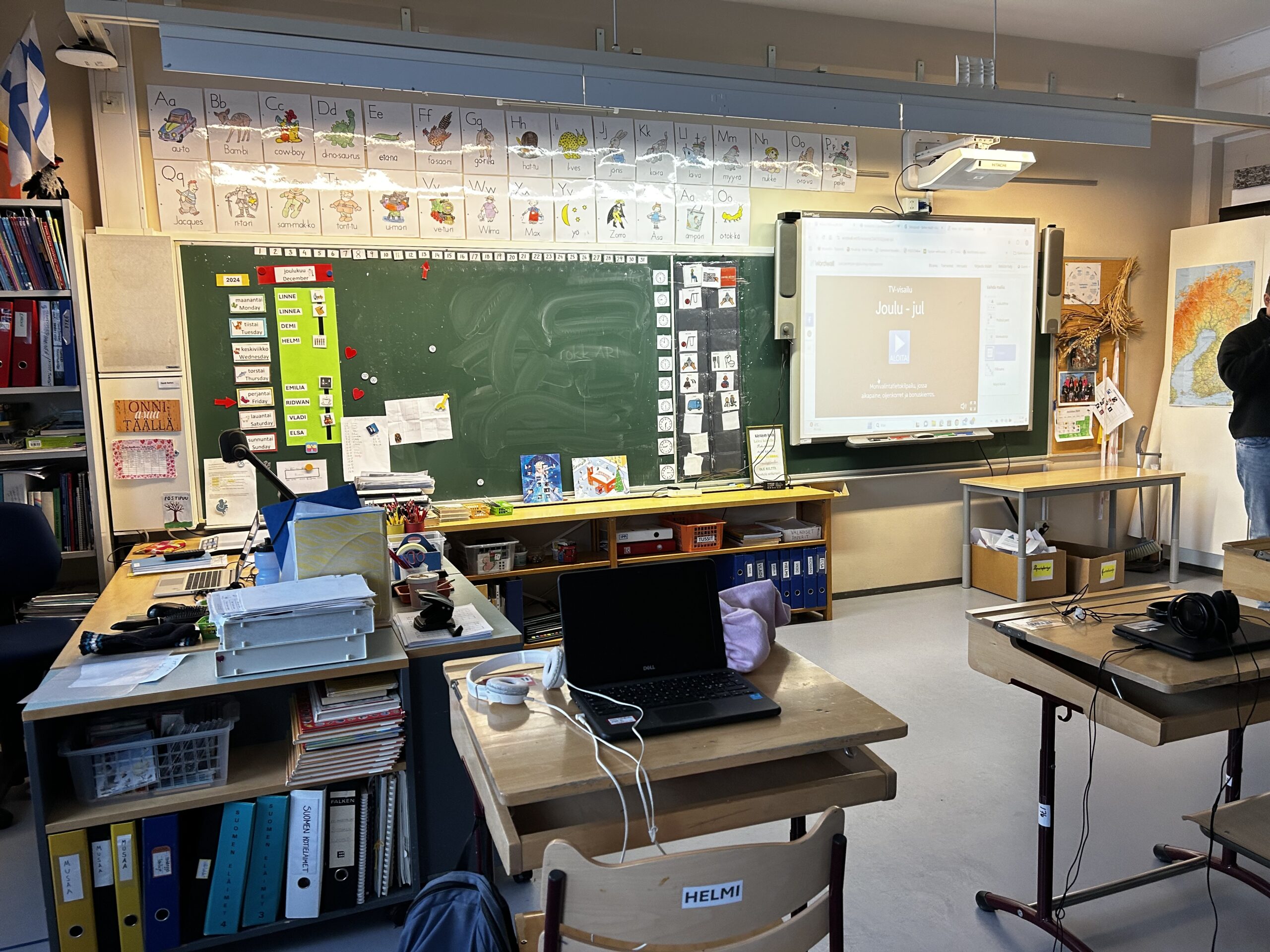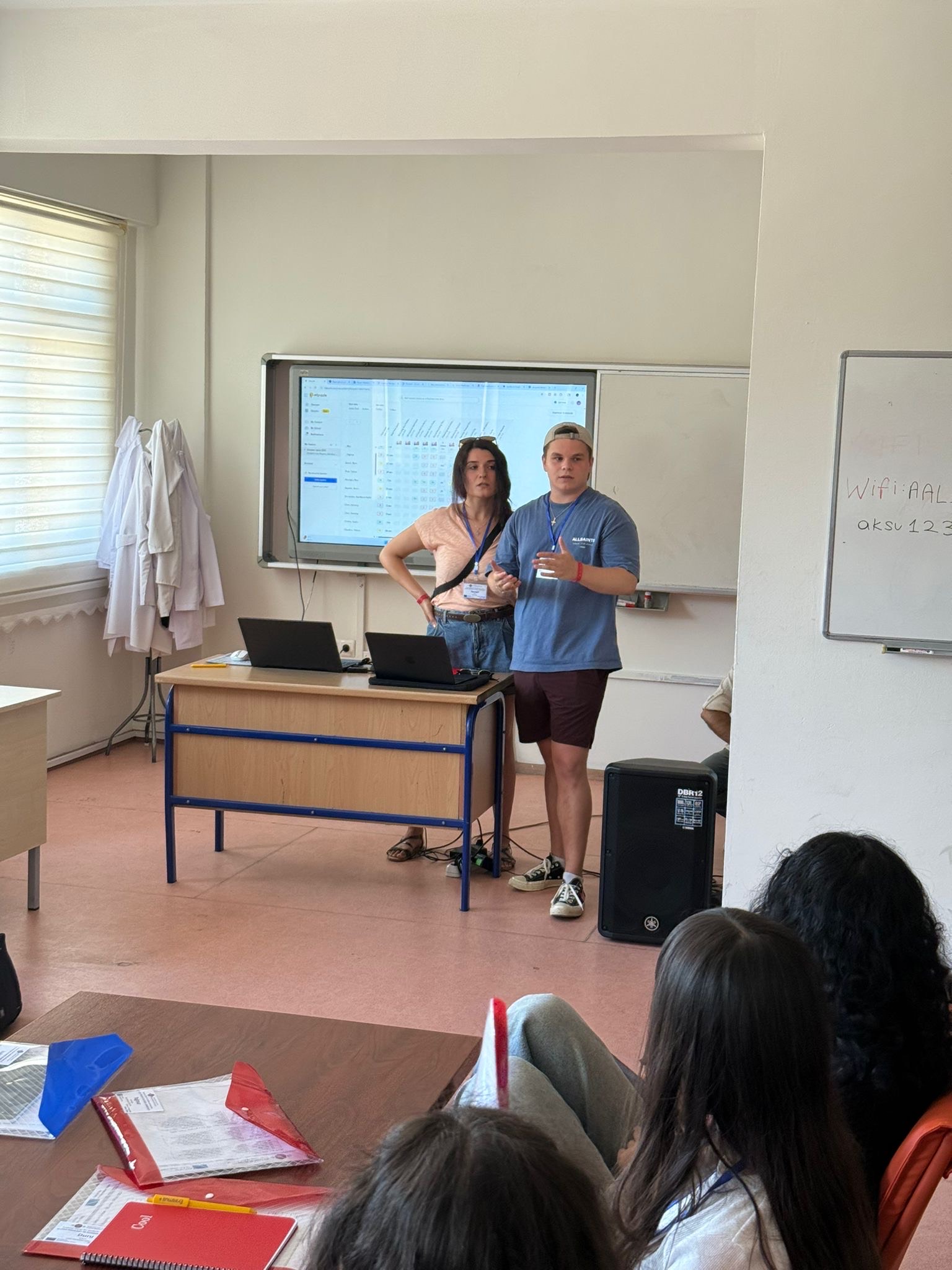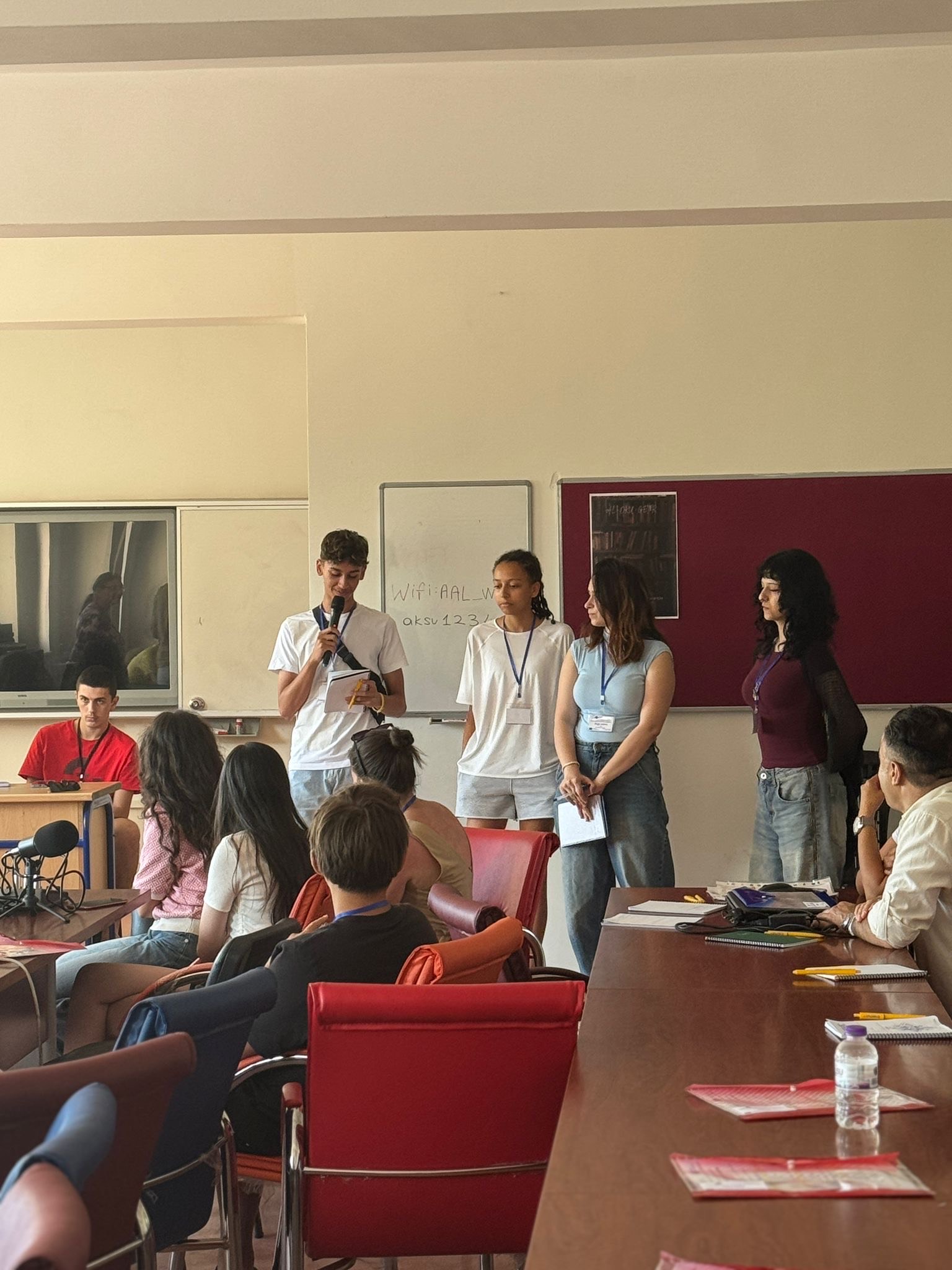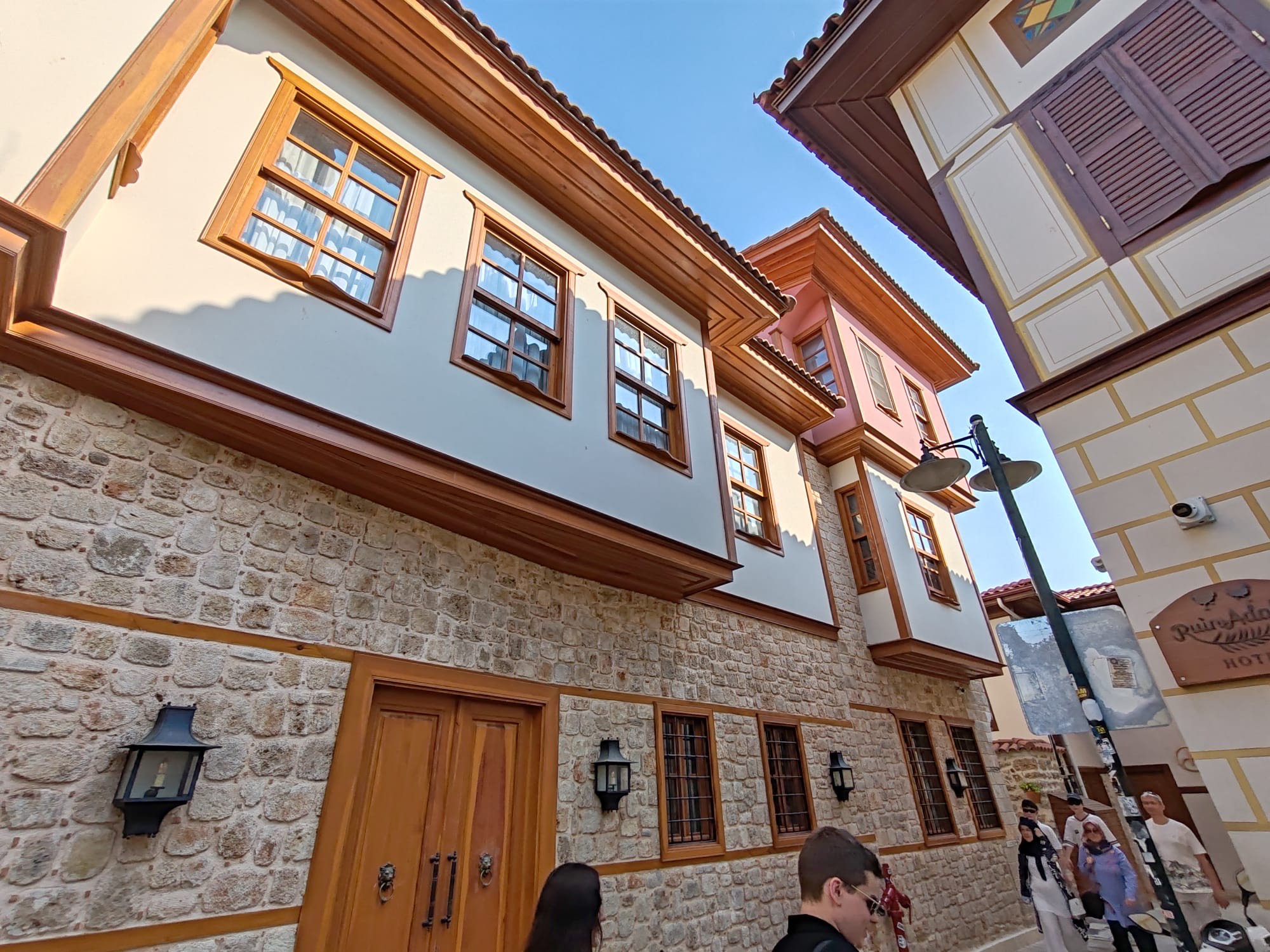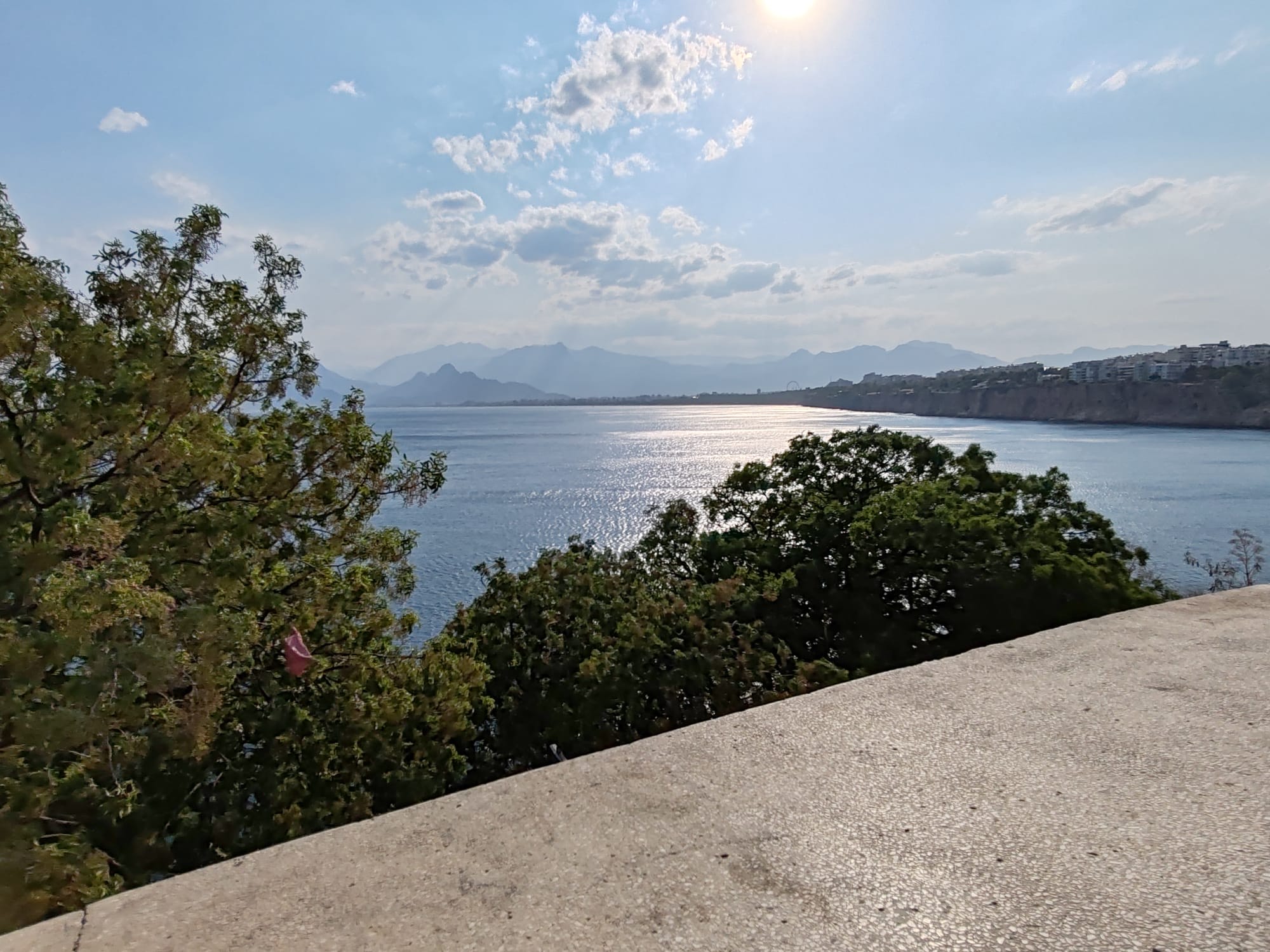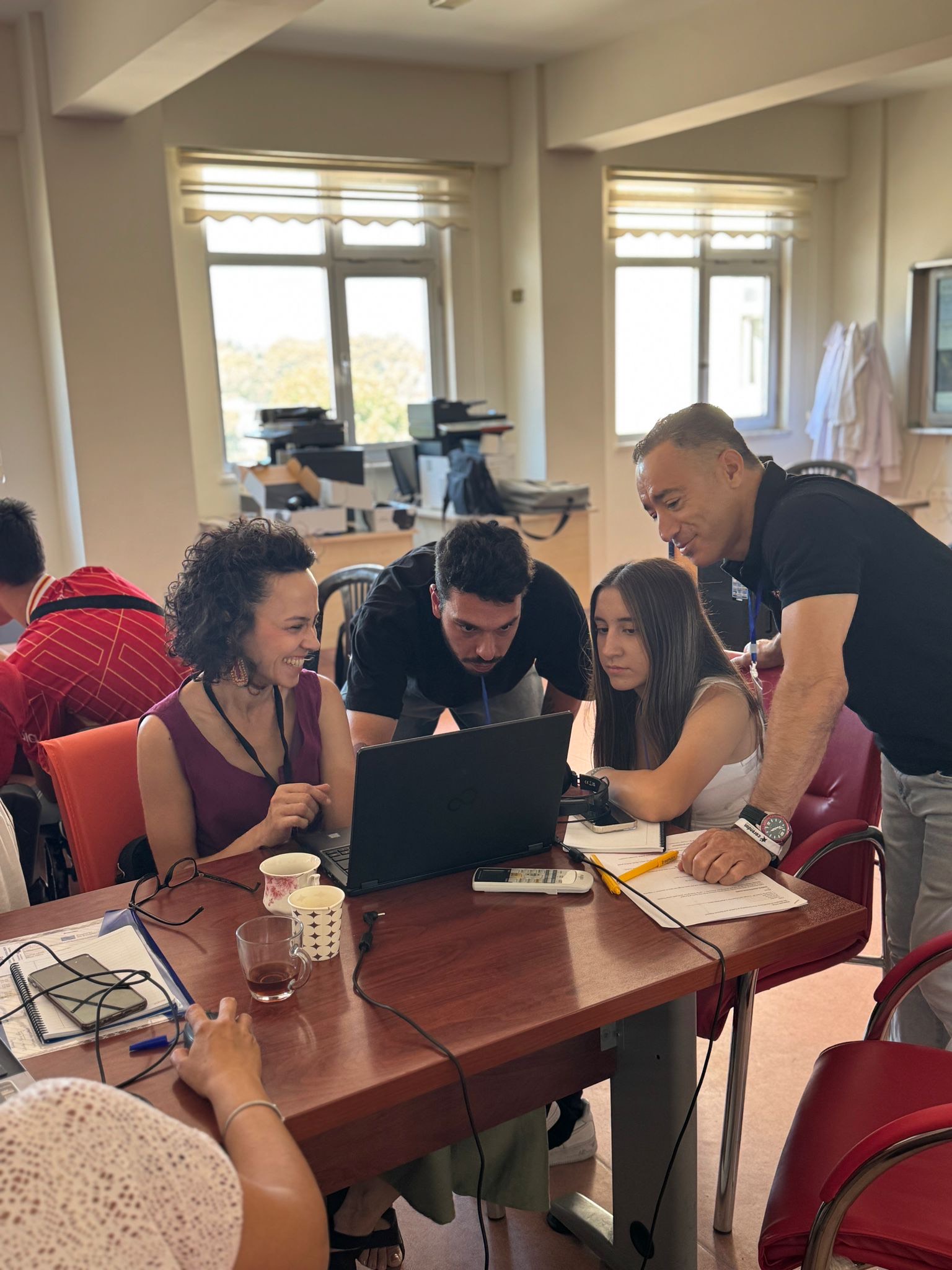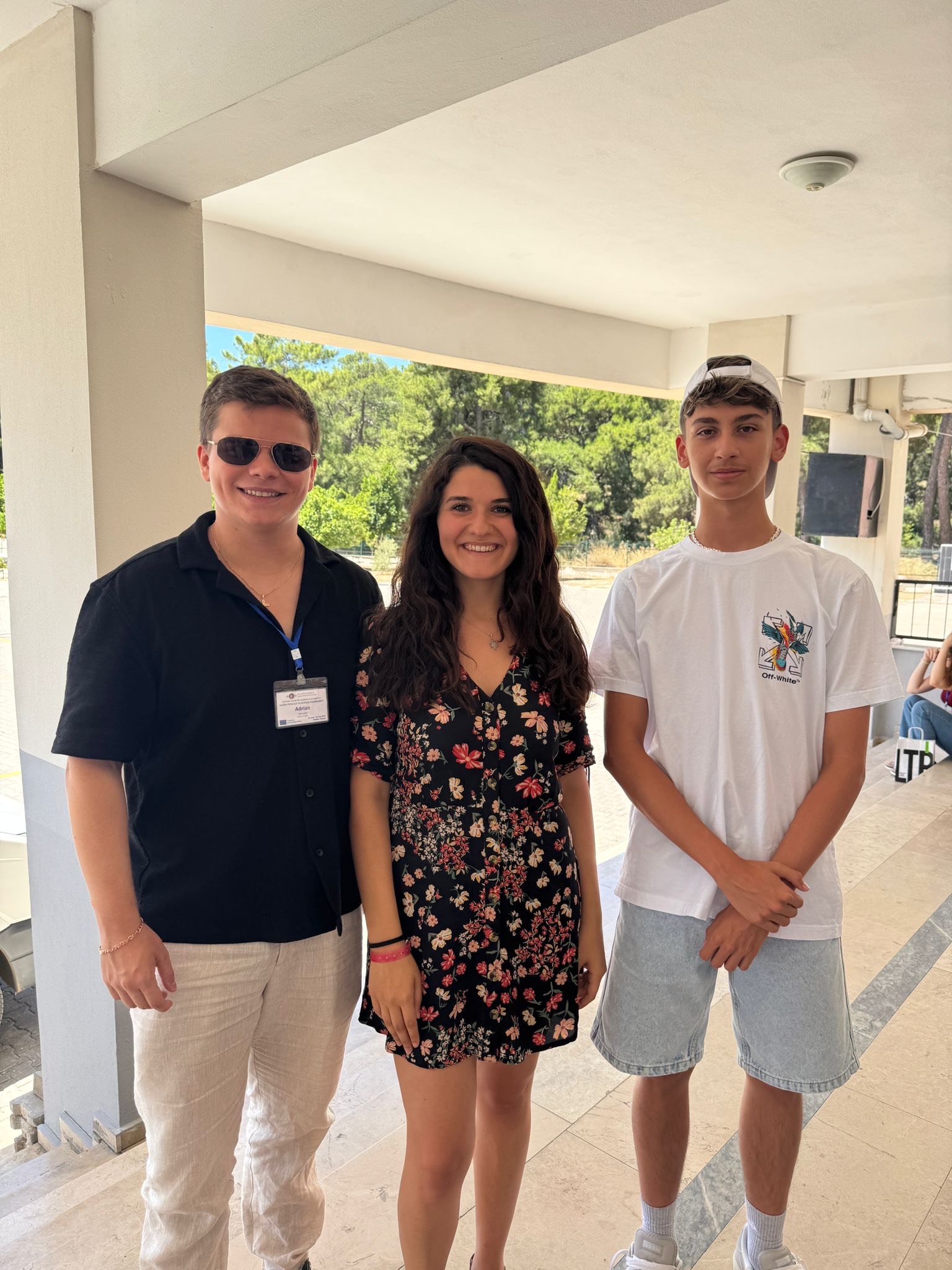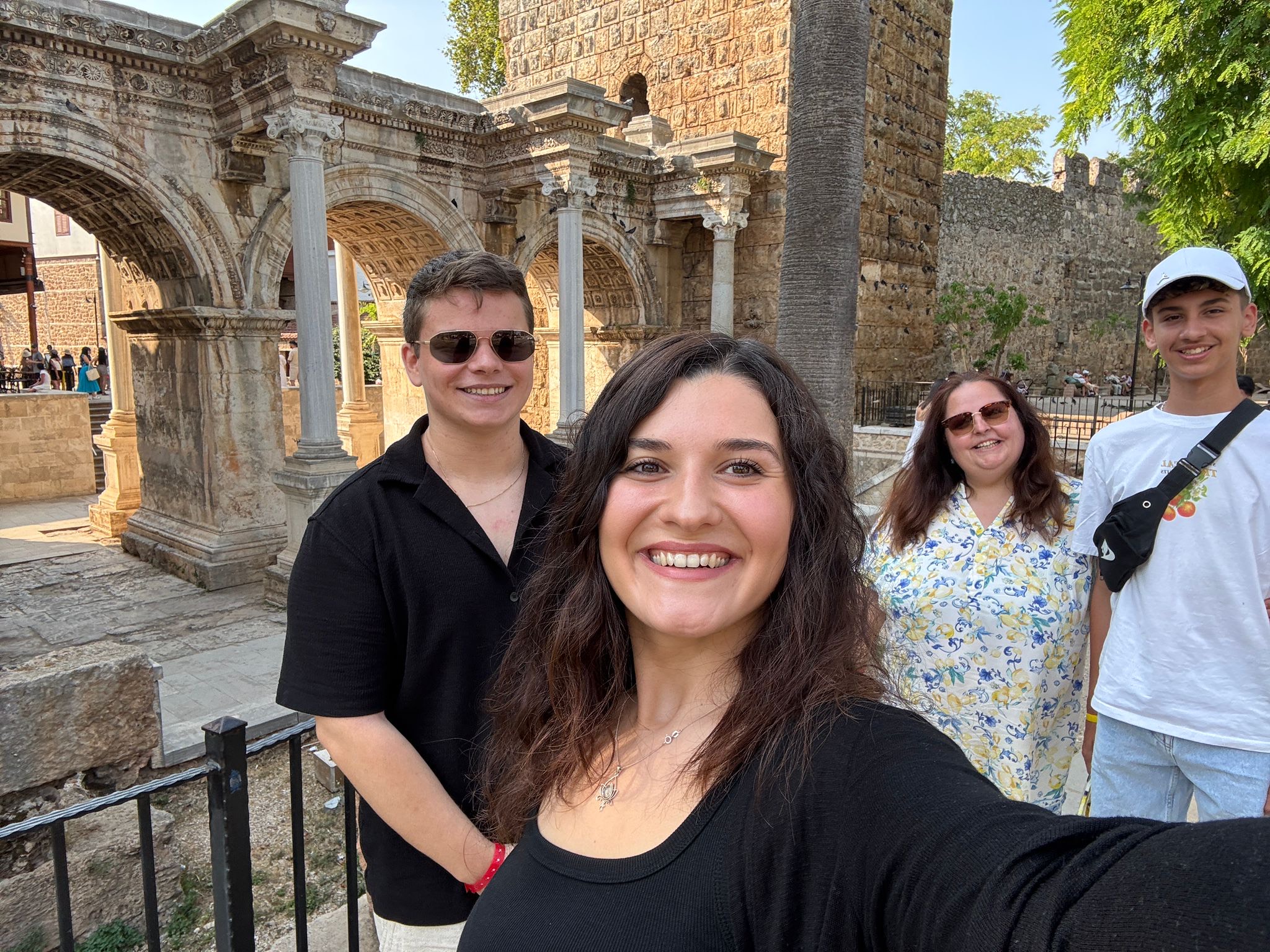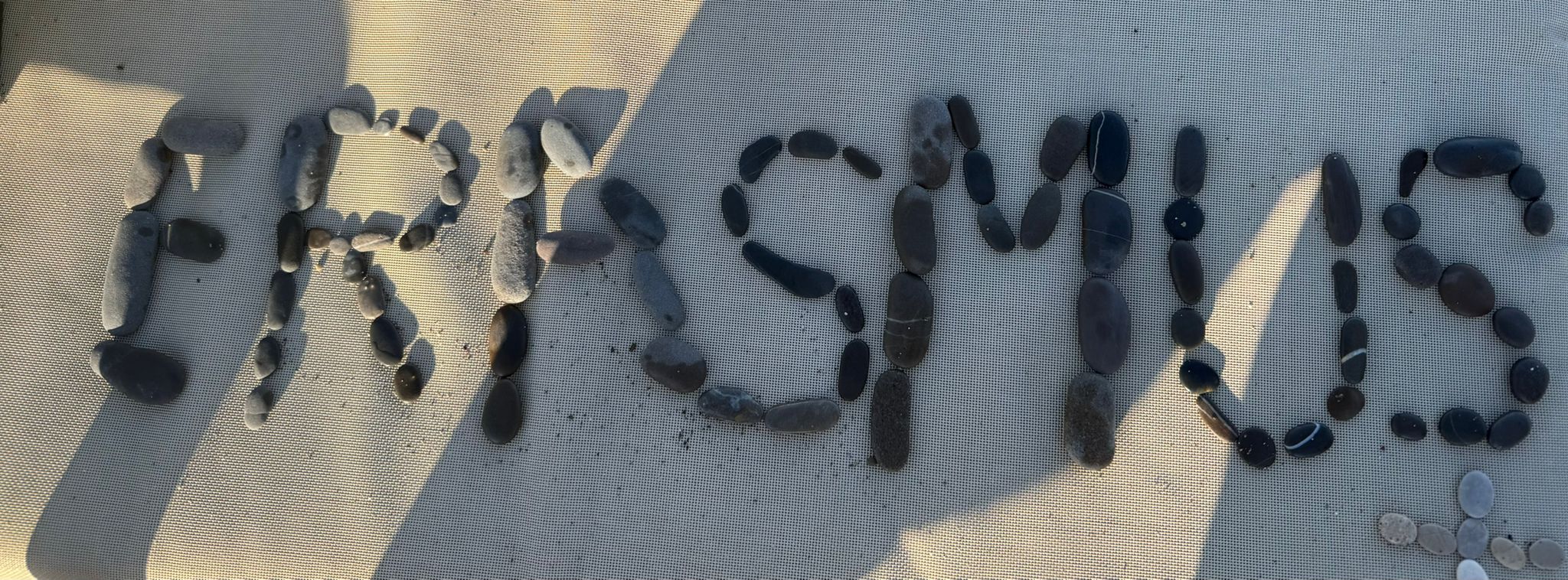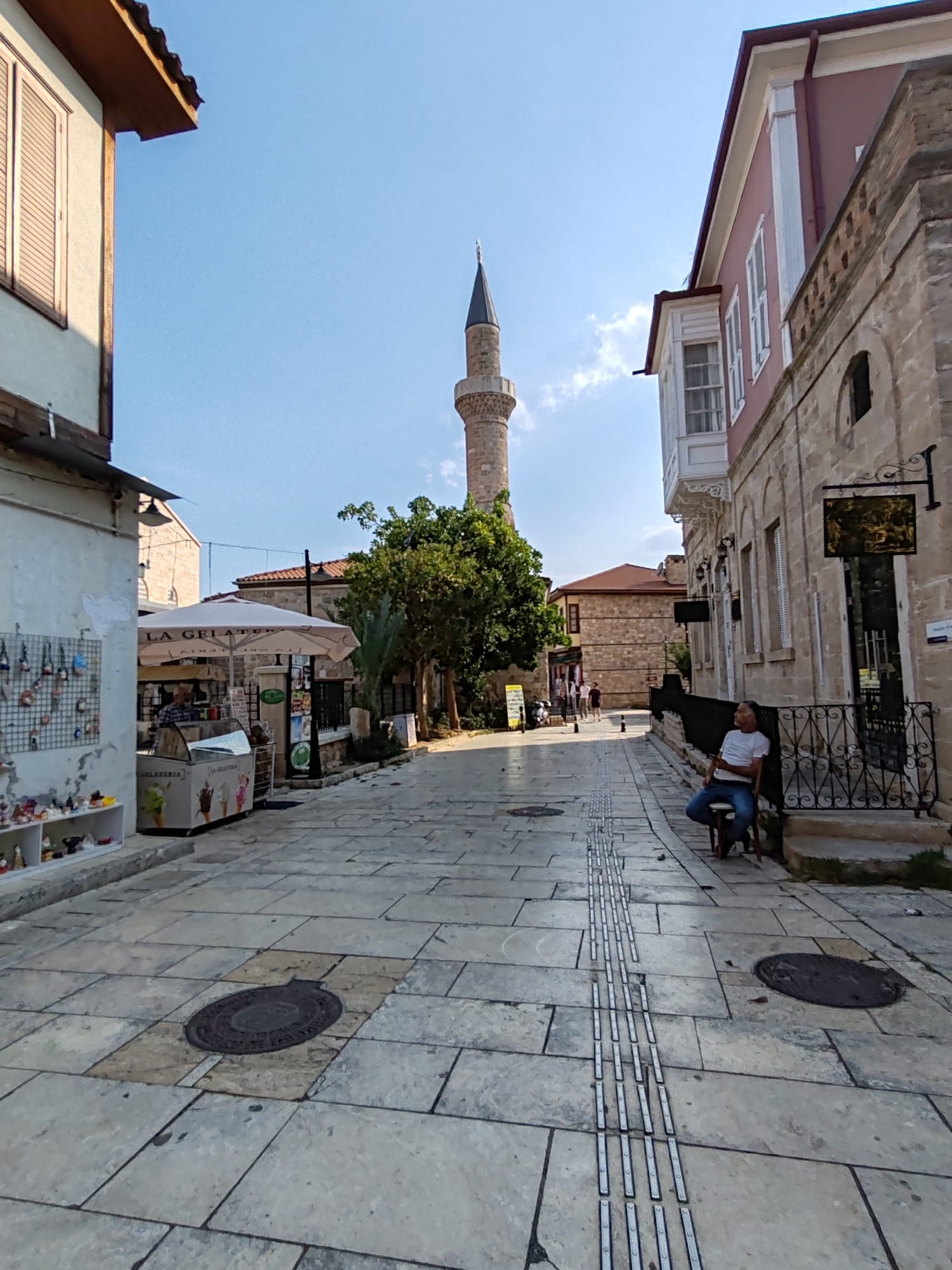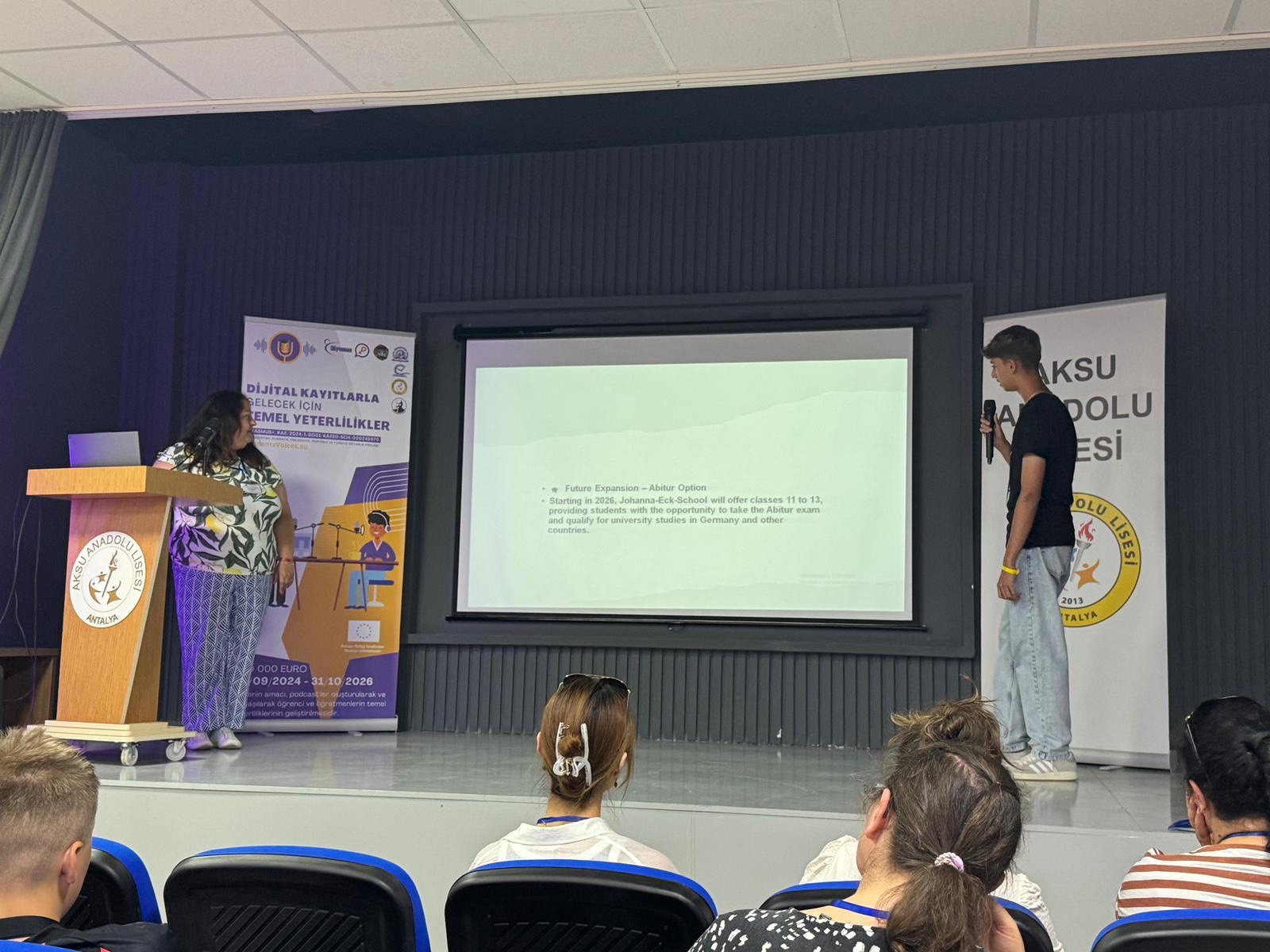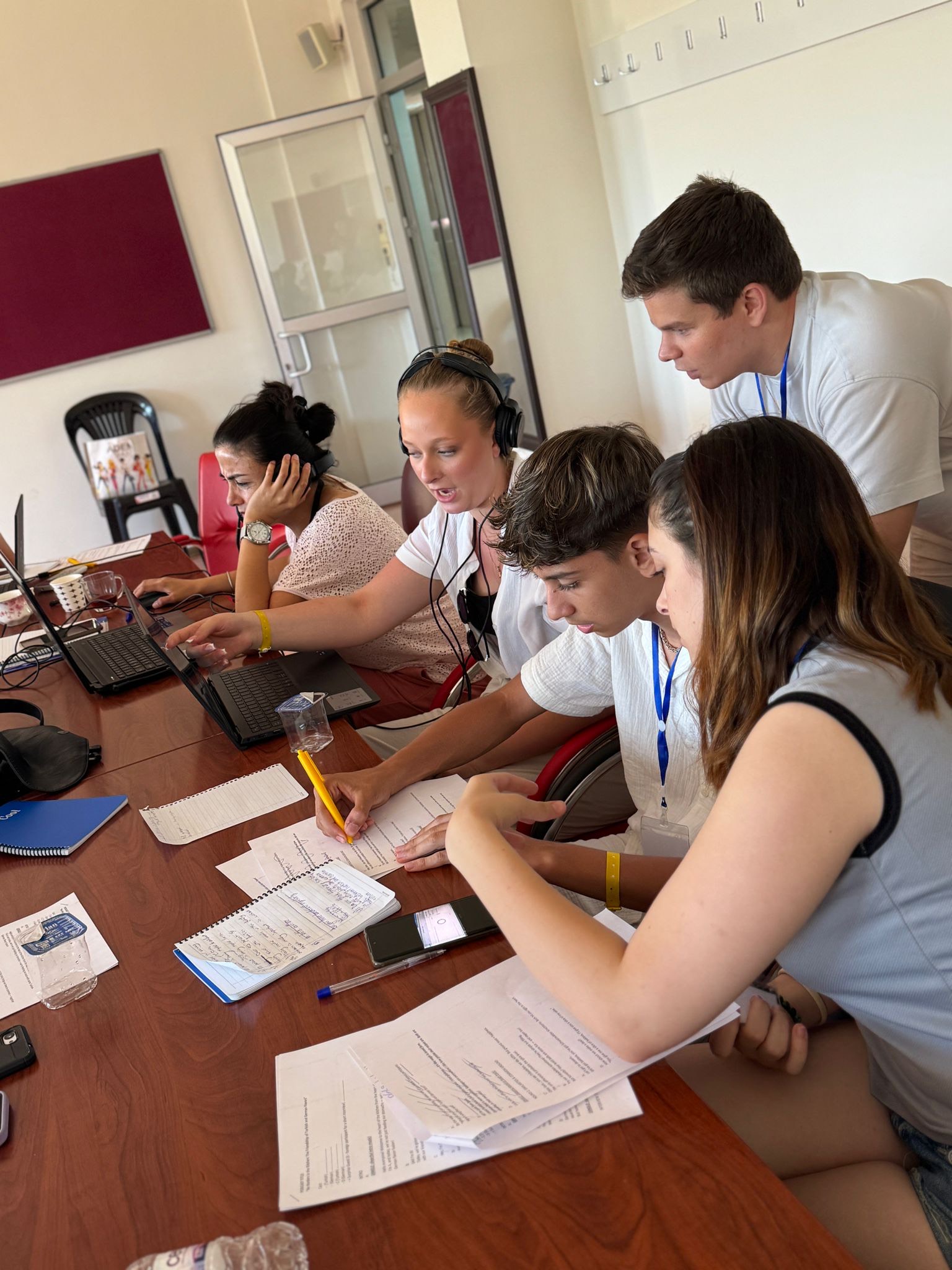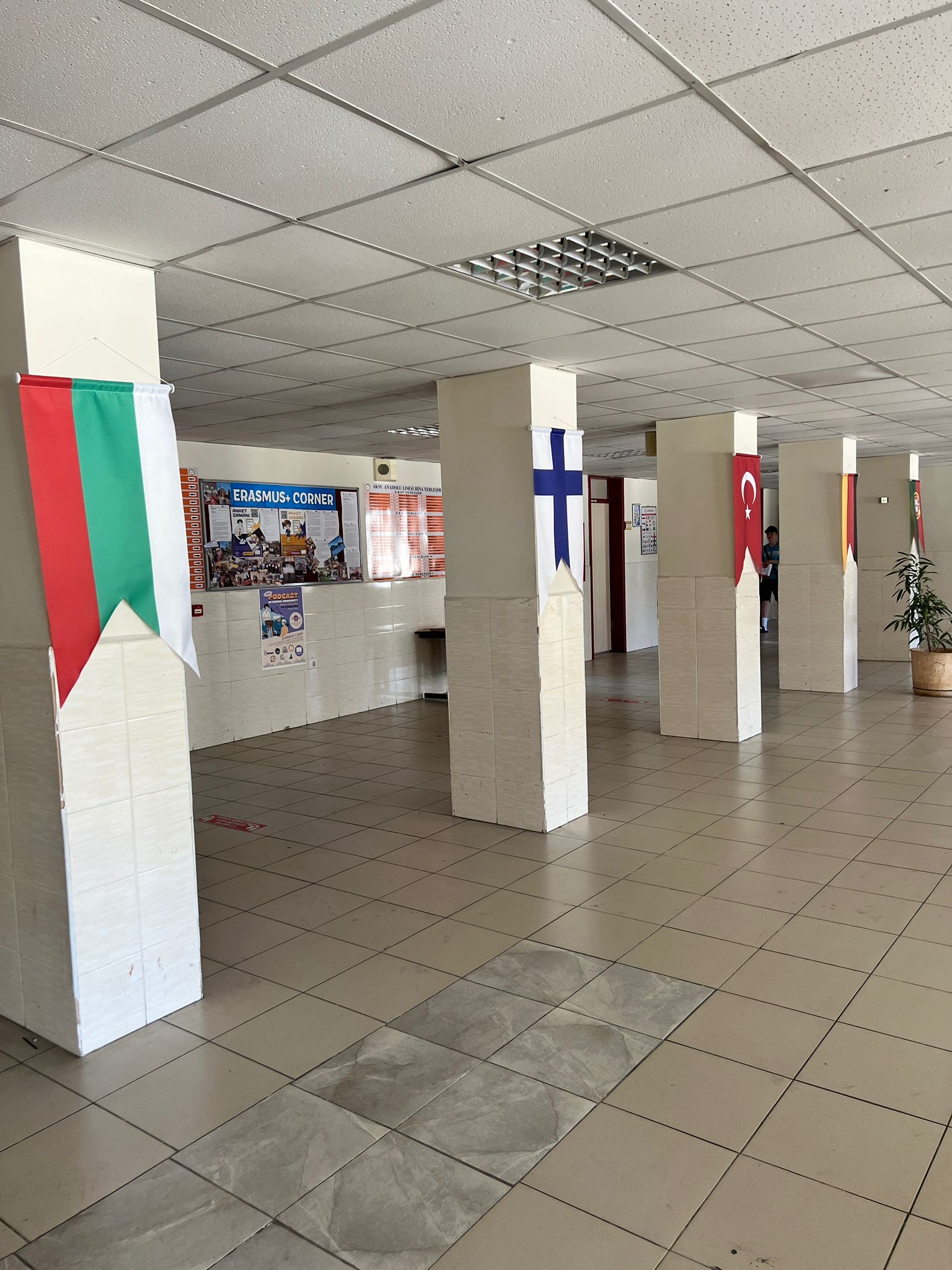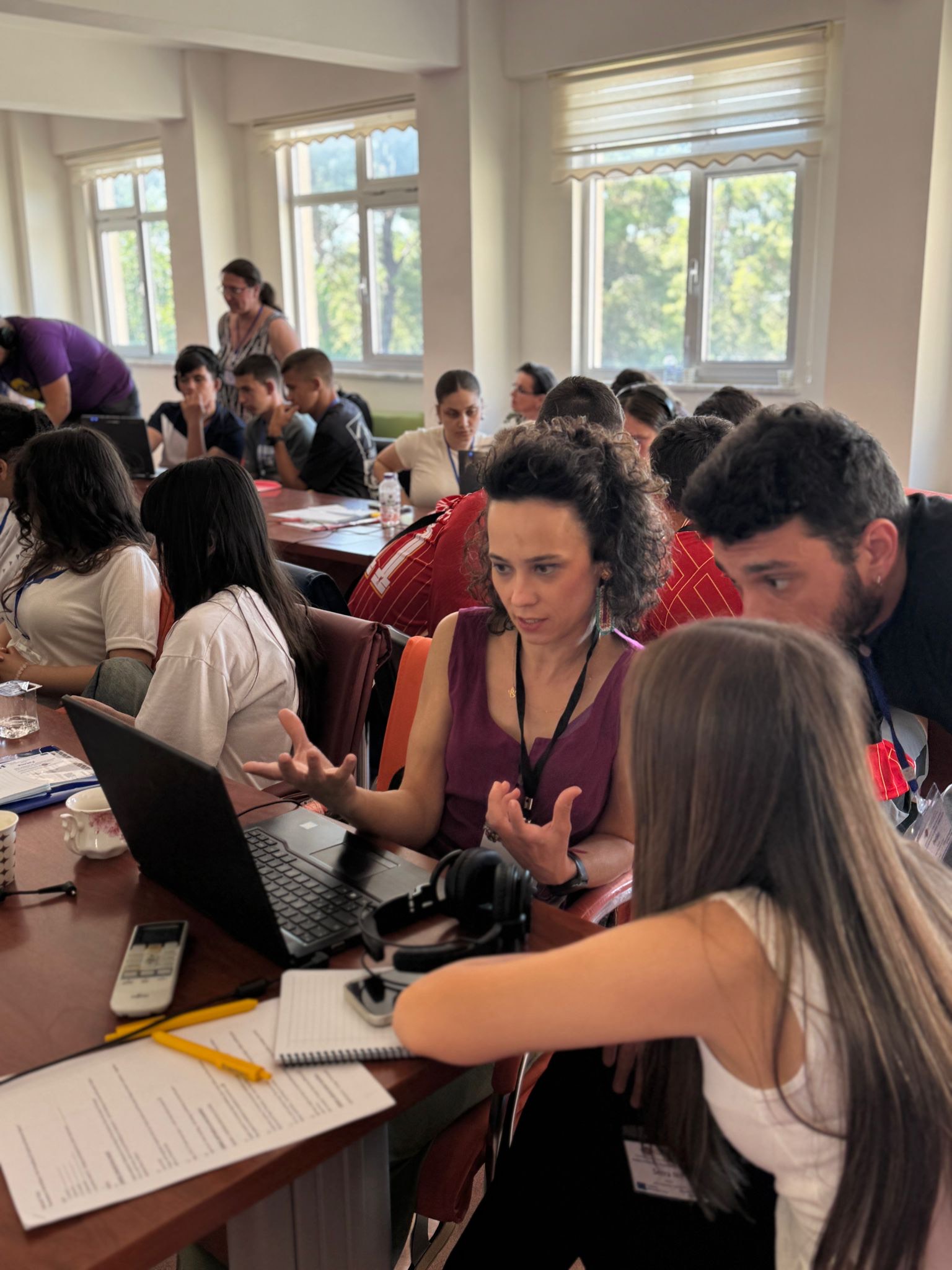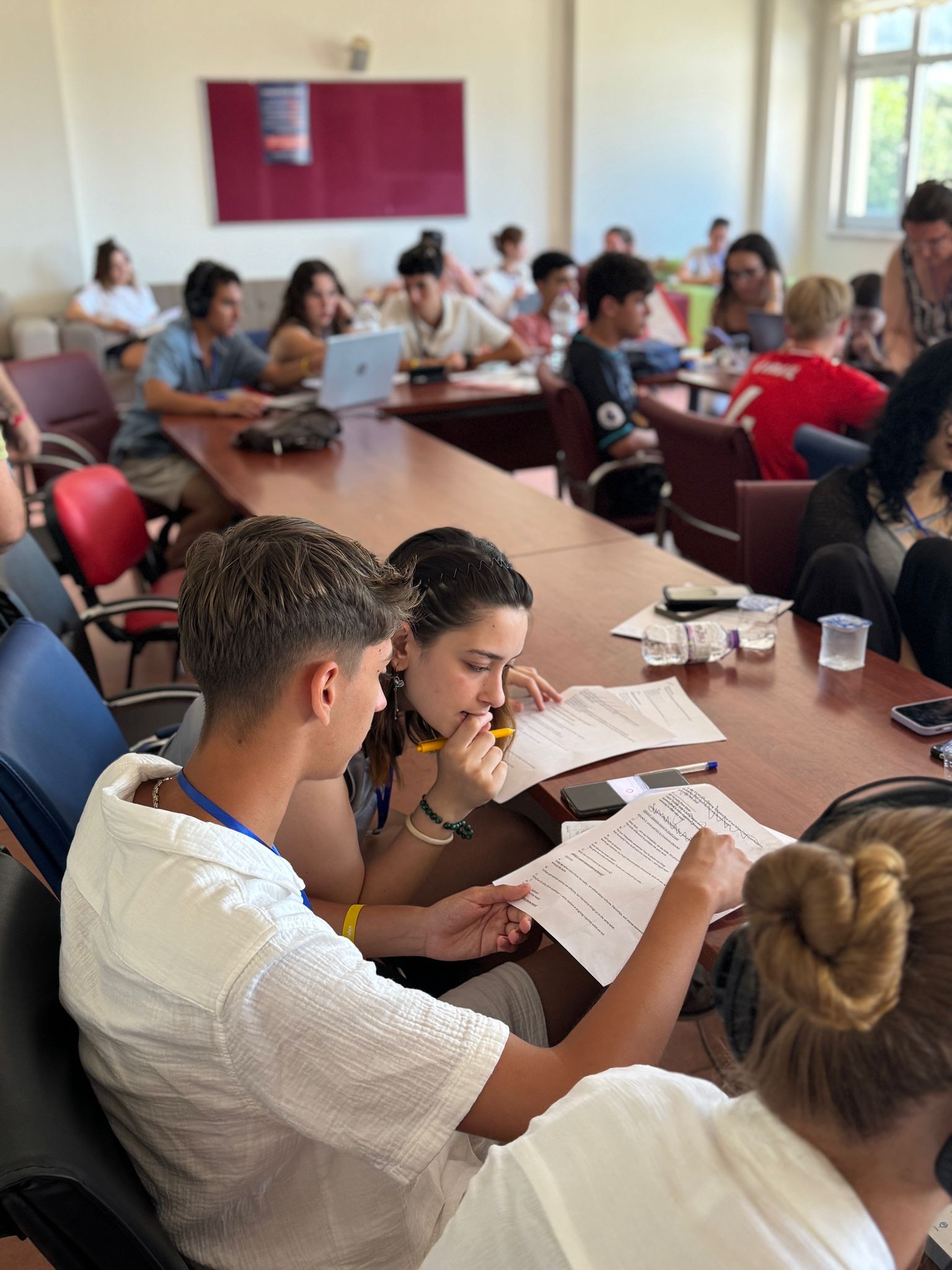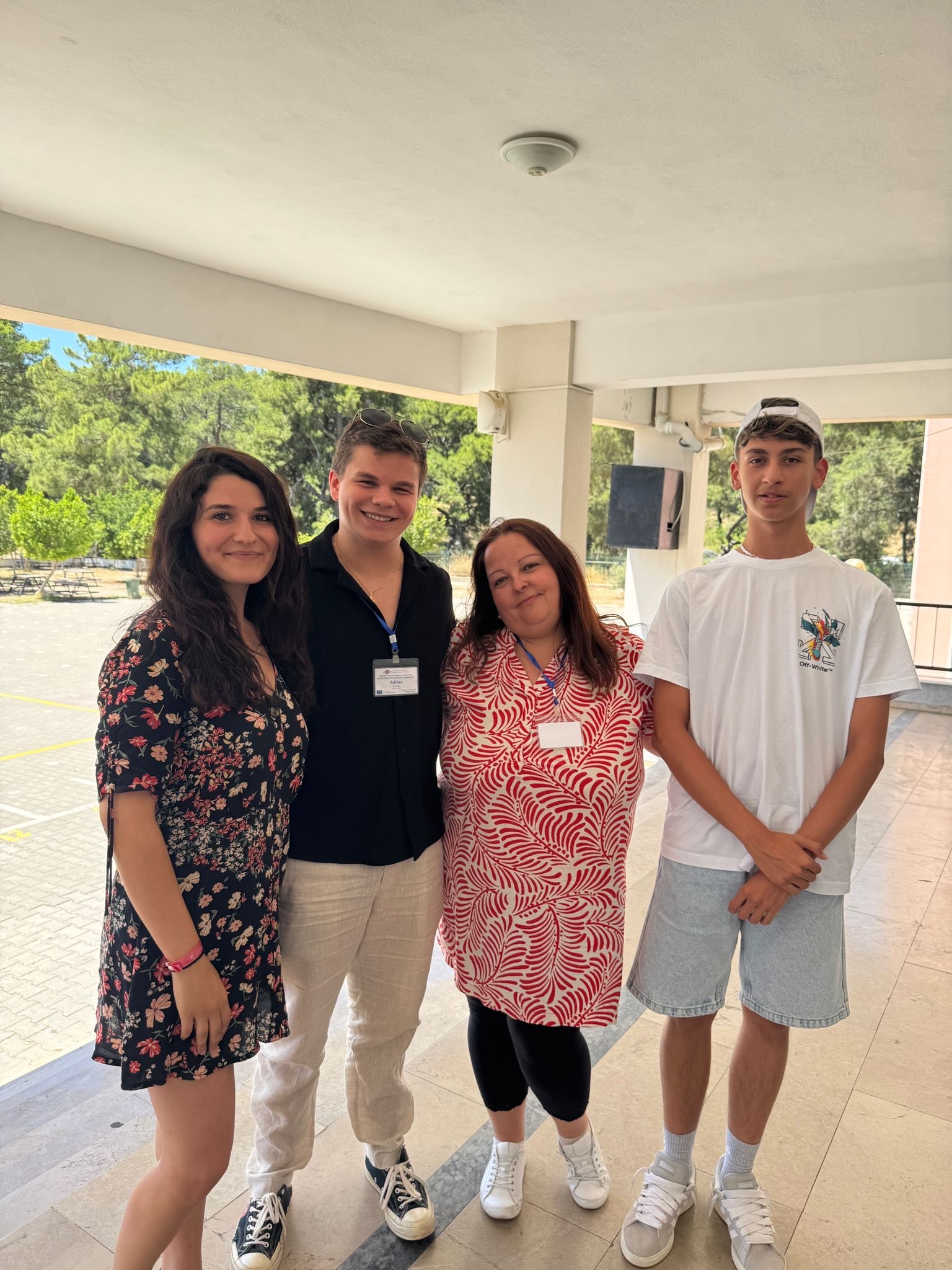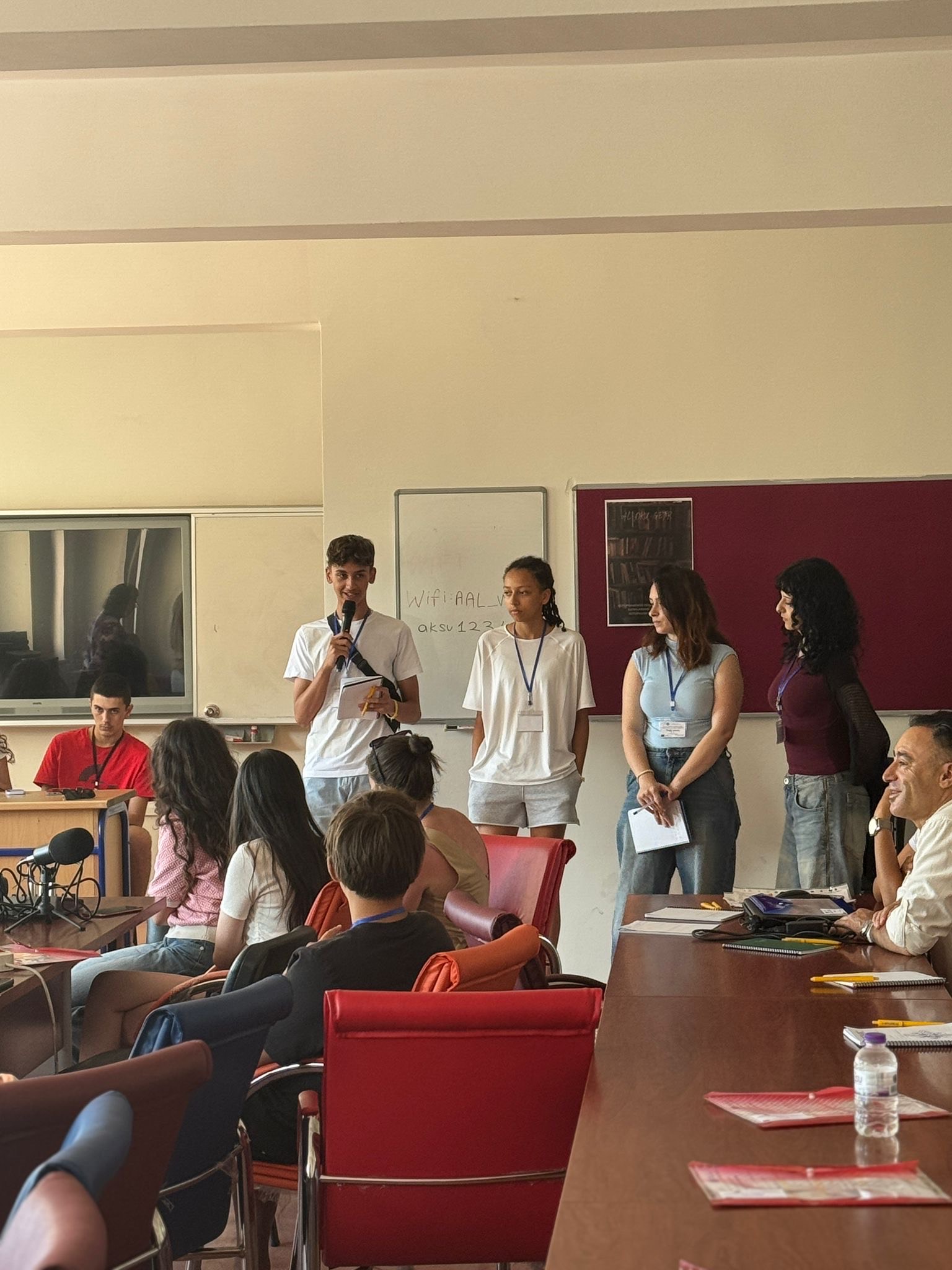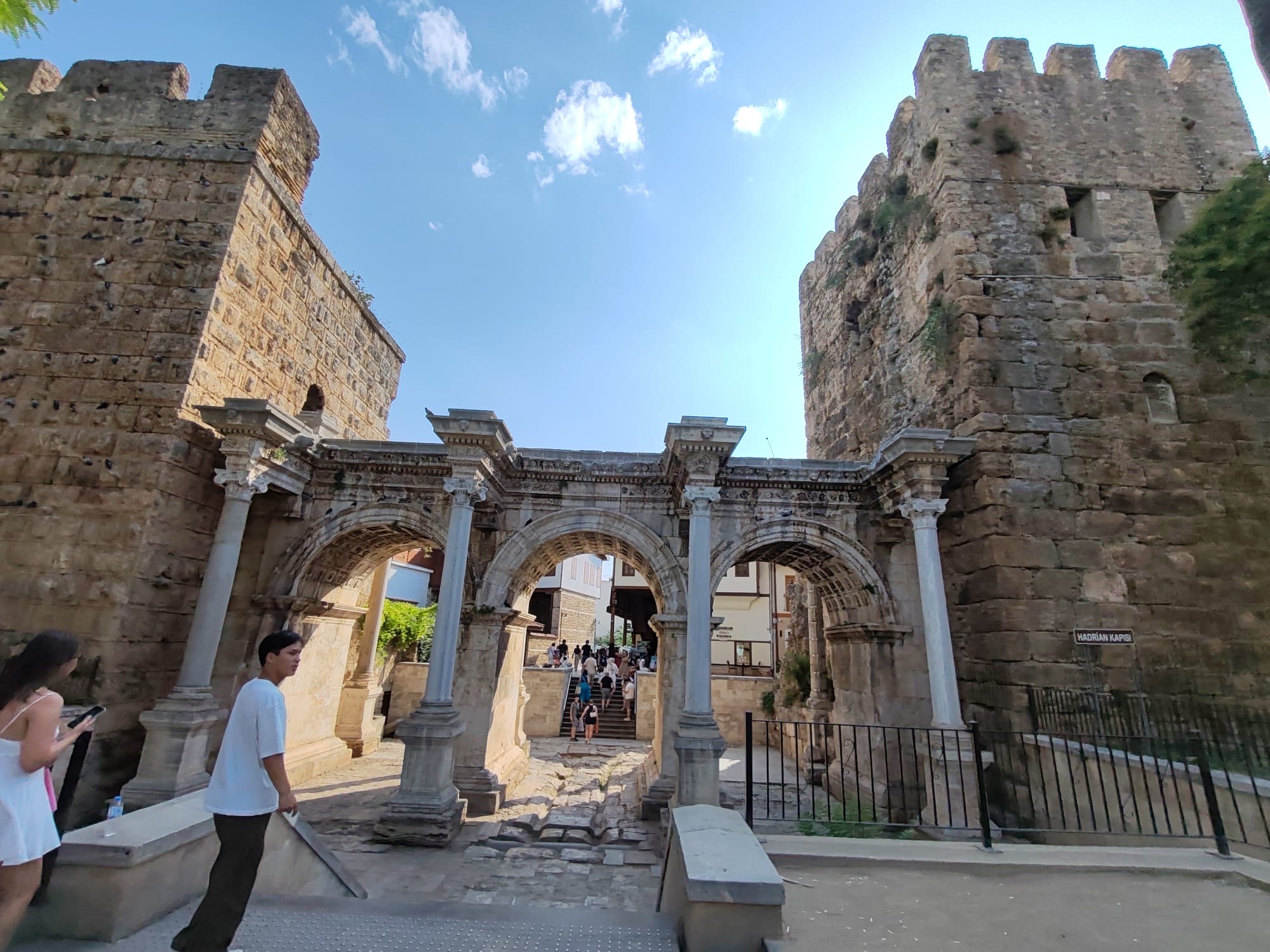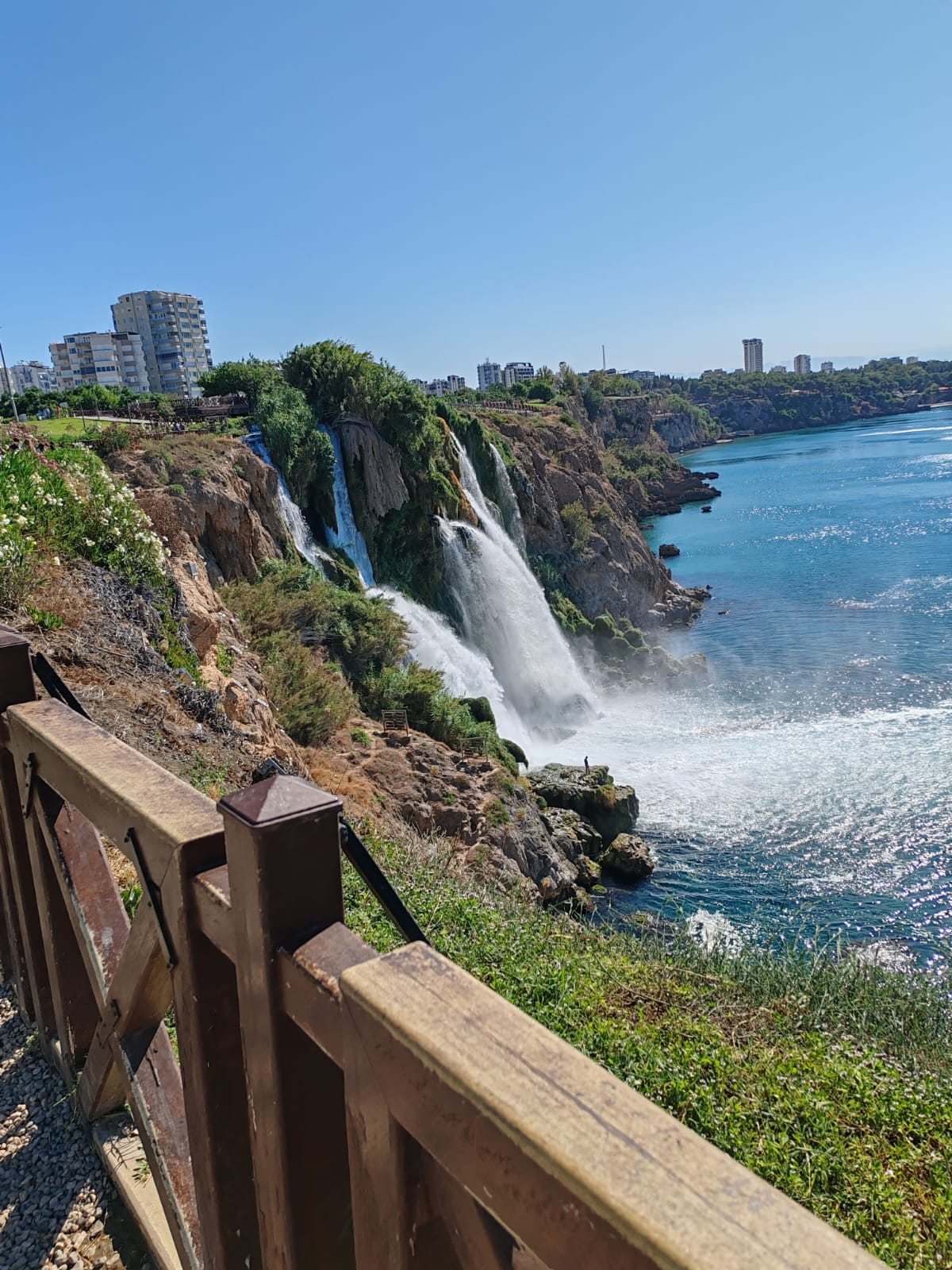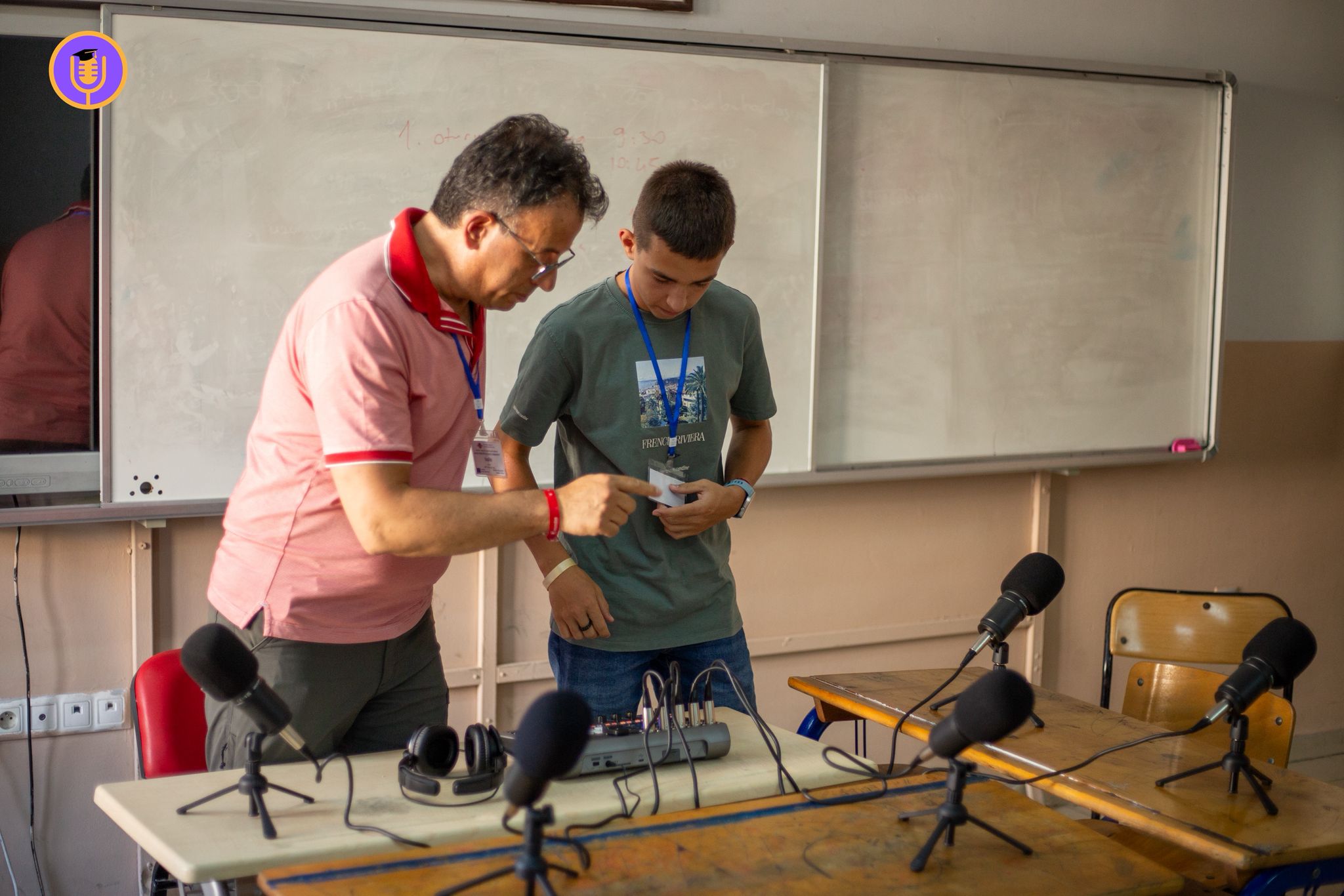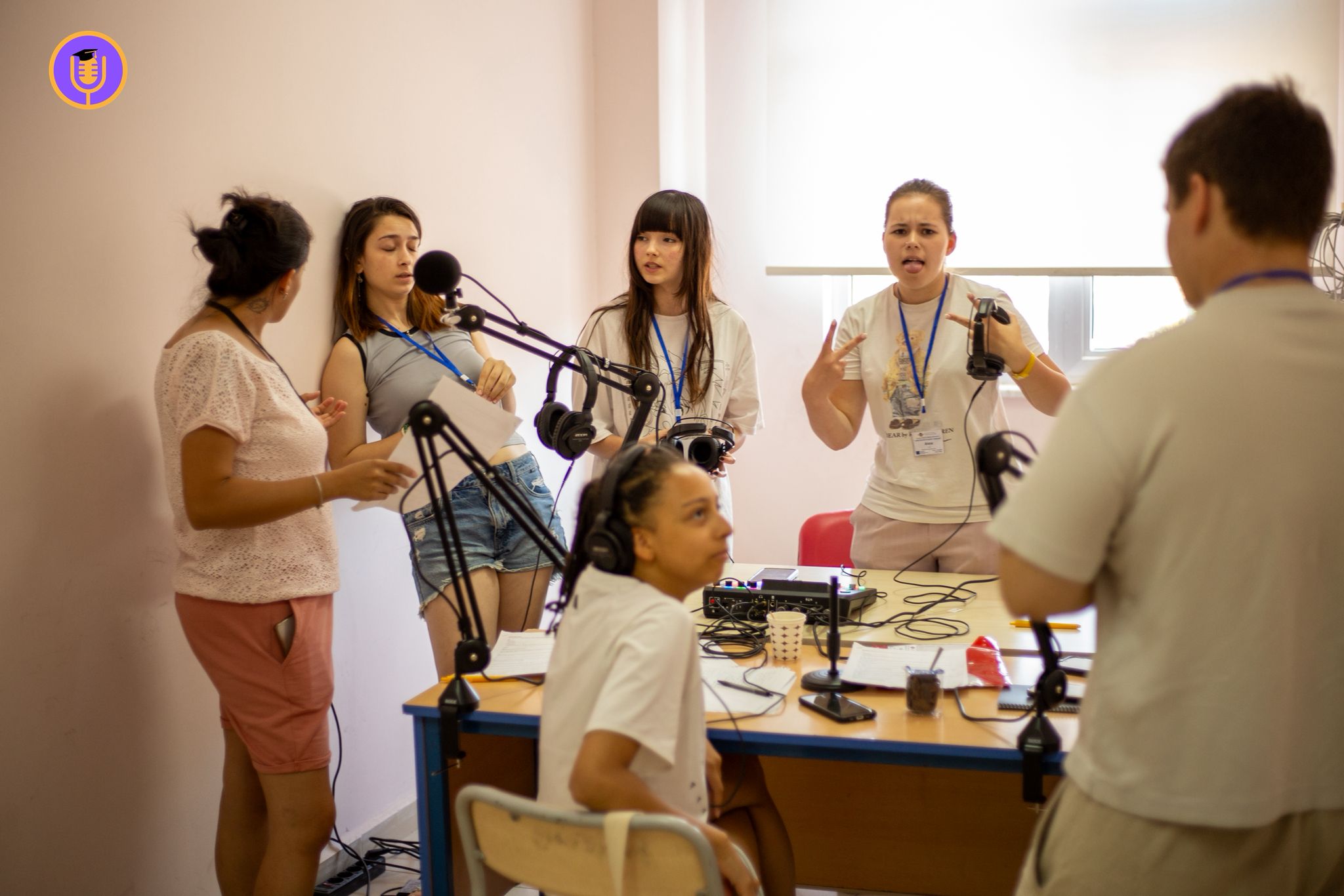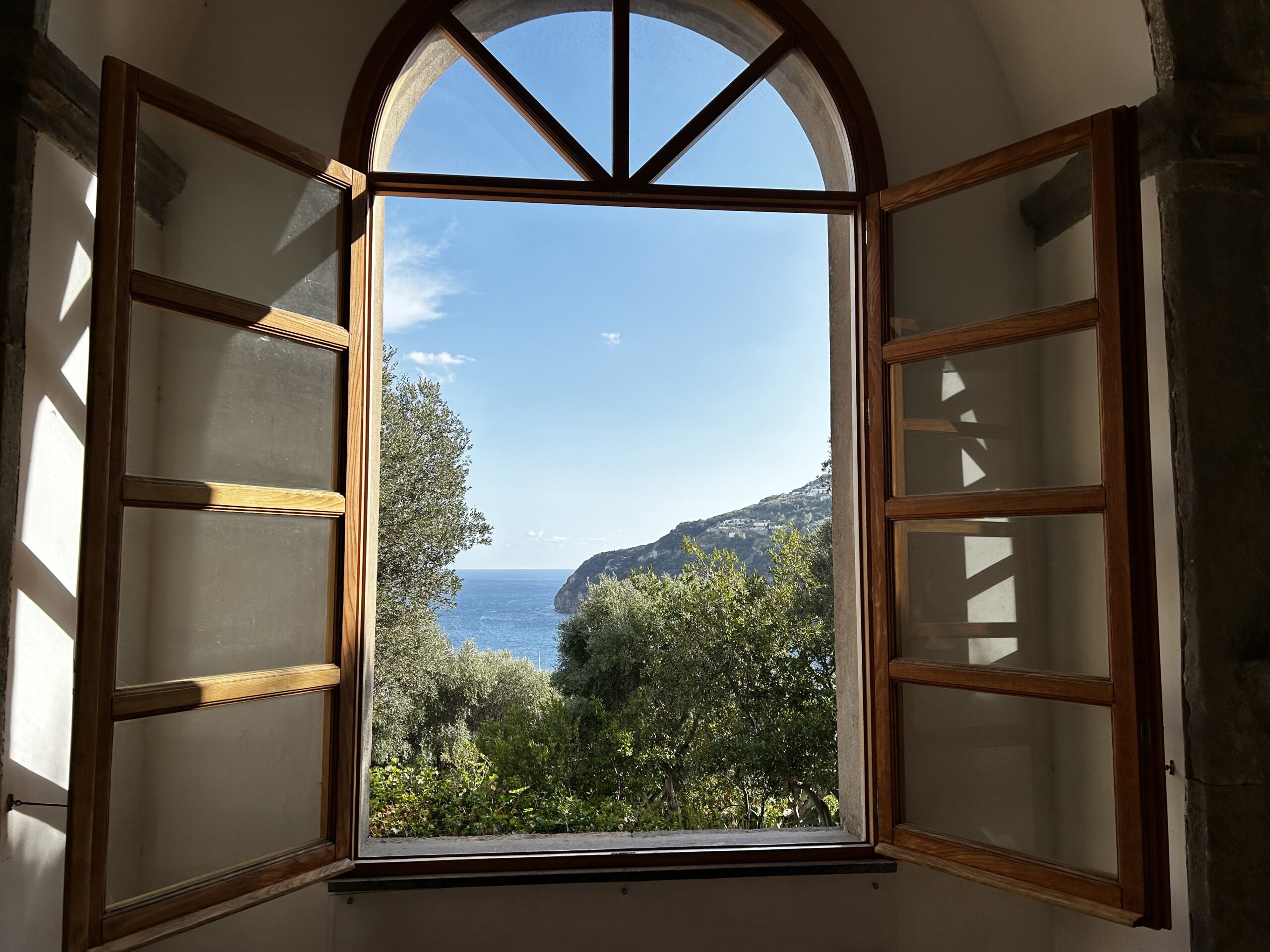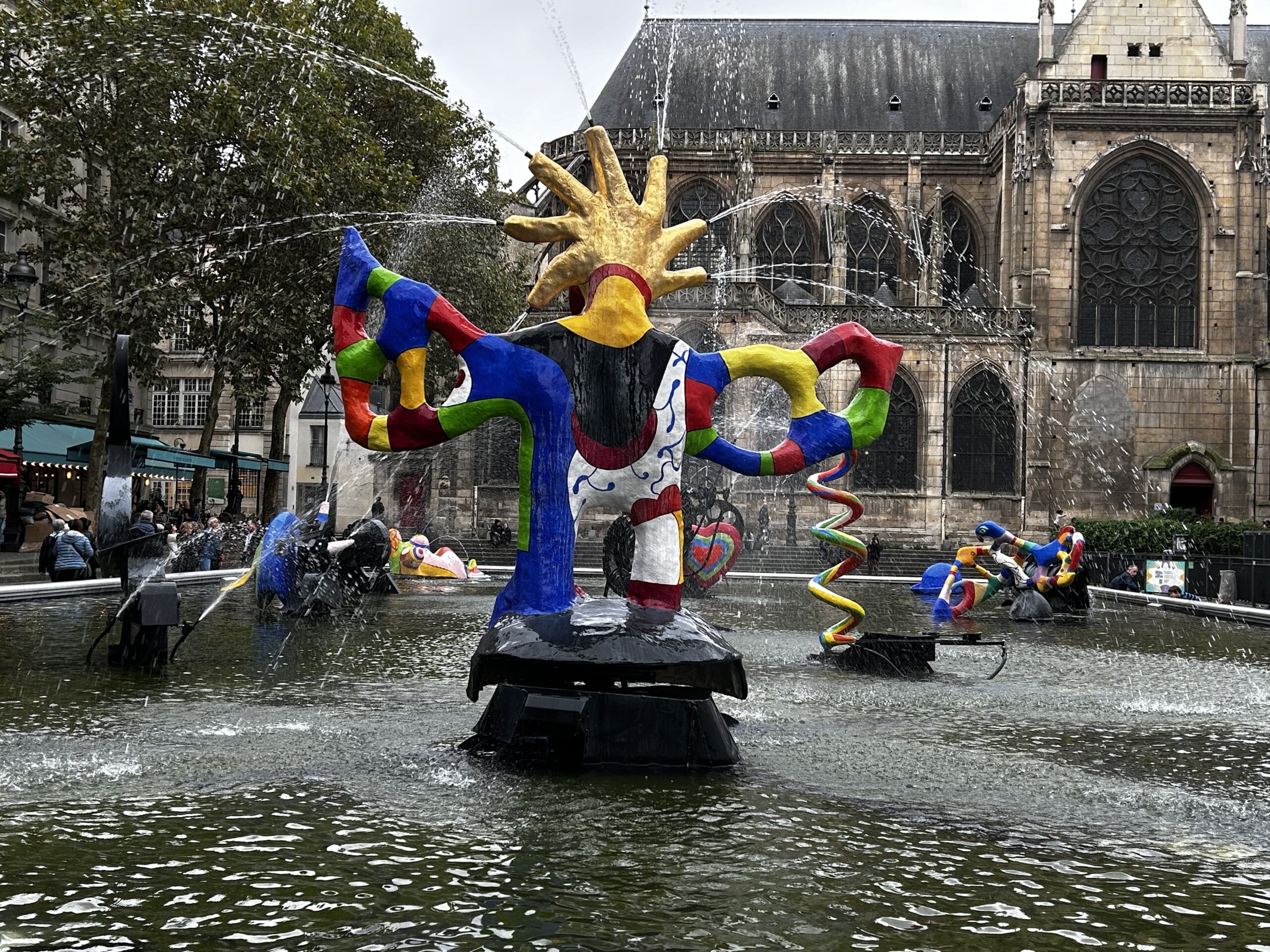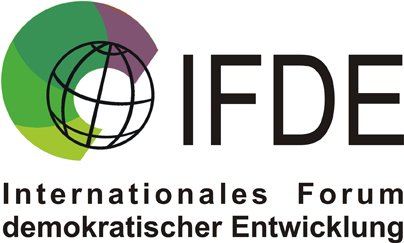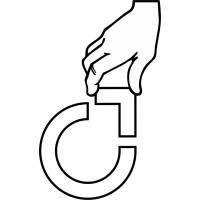Welcome to YCBS on Alex Media. Today, we will be presenting the European project “With Digital Voices to Competences for Future.” As the project title suggests, it’s not only about media skills but also about education and communication. And not least, it focuses on social and civic competences as well as fostering cultural awareness. What is behind this project, which is being carried out with students and educators from Germany, Finland, Bulgaria, Portugal, and Turkey?
Young authors and a teacher will report on it in the Alex Media studio, where our program will also be broadcast.

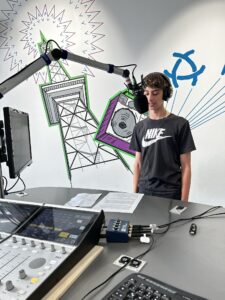
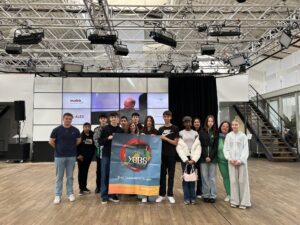
The project aims to develop and promote key competences among students and teachers through the production and dissemination of audio podcasts. Participants are to be prepared for future challenges in professional life and in an evolving society. The goal is to enhance digital skills, critical thinking, creativity, and communication abilities.
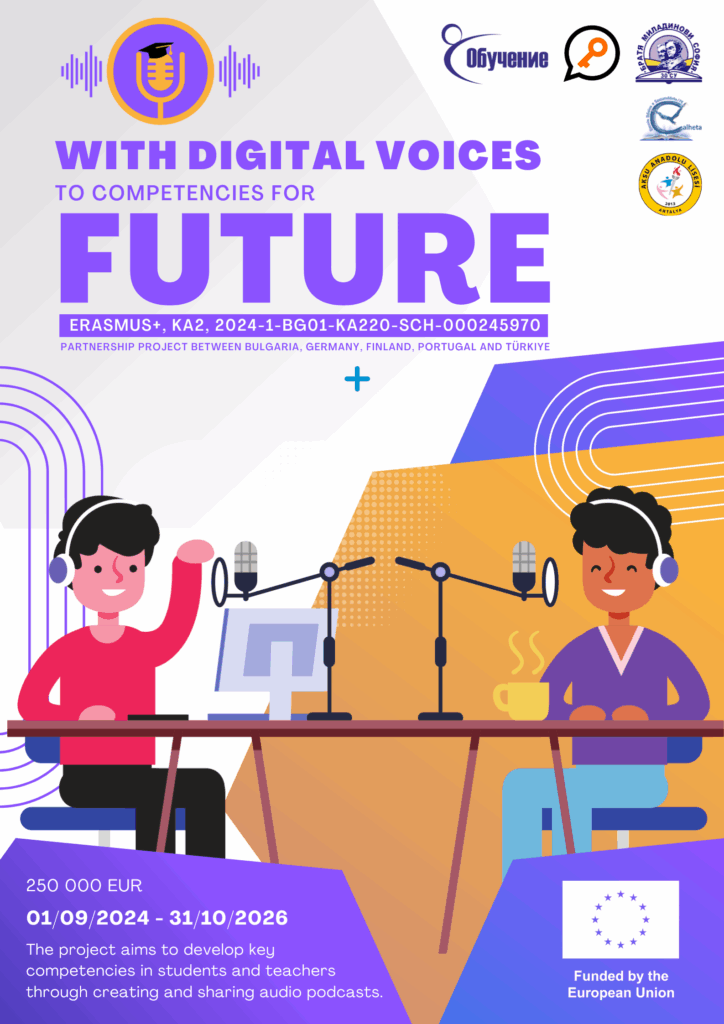
What activities are planned? The project includes activities such as:
- Developing methods for the use of audio podcasts in education
- Producing video tutorials on podcast production
- Creating a web platform for sharing resources
- Organizing an international summer camp
- Producing multilingual podcasts
- Acquiring the necessary equipment
- Conducting teacher training courses. Additionally, the project facilitates international exchanges during the podcast production phase.
What will the project outcomes be?
- Production methods for educators, including strategies for evaluating and disseminating content
- Video tutorials introducing educators to various aspects of podcasting
- A central online platform for sharing methods and resources
- Podcasts in multiple languages representing different cultures
- Teachers and students capable of producing multilingual podcasts
In the first phase of the project, schools will promote the project and identify key competences and how to support them in the learning process. This will be done through quantitative surveys translated into the relevant project languages. Training organizations in the partner countries will carry out these surveys. Which key competences are addressed?
- Literacy
- Multilingualism
- Mathematical, scientific, and technical competence
- Digital and technology-based competence
- Social competence and the ability to learn new skills
- Active citizenship
- Entrepreneurial competence
- Cultural awareness and expression

One of our project stops: Helsinki The focus of our workshops and school visits was education. It’s no secret that Finland’s education system is among the best in Europe—and even the world. What makes it so special? There is no magic formula—rather, it’s a combination of factors. The Finnish teaching model is tailored to students’ individual needs and talents. Finland also emphasizes inclusion—especially linguistic inclusion. Different mother tongues are acknowledged and incorporated into learning.
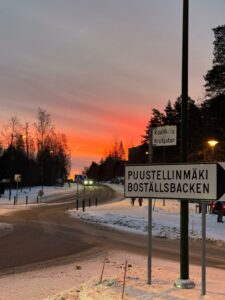
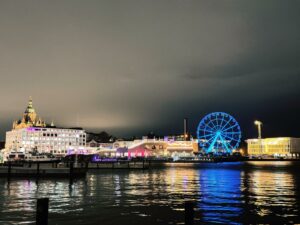

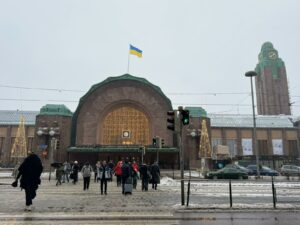
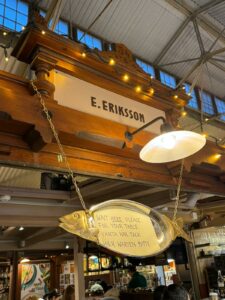

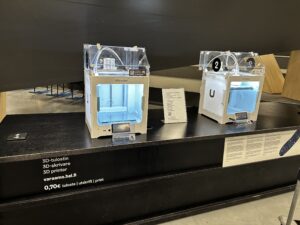
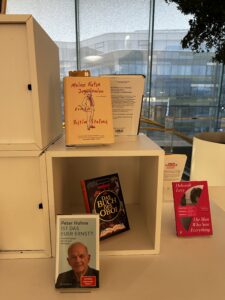
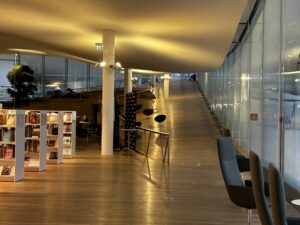
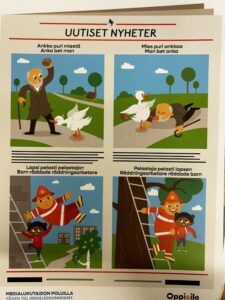
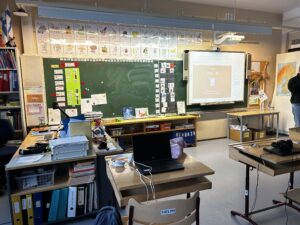
From grades one to nine, students attend the same school, which supports equal opportunities. The teaching profession is highly respected in society. Education also takes place in public spaces, such as the modern Oodi Library in the center of Helsinki. The library is a hub for cultural and social activities, where people can use music studios, a cinema, event spaces, and modern technical equipment free of charge.
The word “Podcast” “Podcast” is a combination of “iPod” and “Broadcast.” The term “podcasting” was first coined by Guardian columnist and BBC journalist Ben Hammersley in February 2004, when writing an article for The Guardian.
Podcasts are relatively easy to produce and distribute online. Producers are independent of traditional broadcasting corporations. 65% of people in Germany—almost two-thirds of the population—now listen to podcasts at least occasionally. Among younger audiences aged 16–29, the figure rises to 87%.
This comes from the Podcast Trend Report by the Society for Integrated Communication Research (GIK).
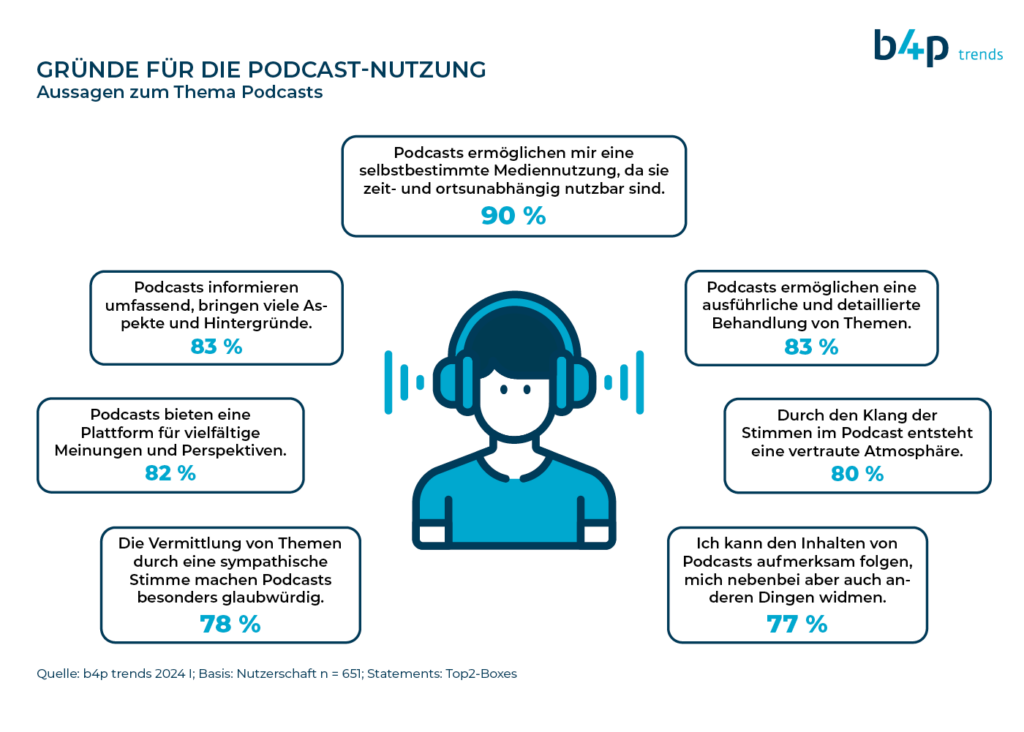
90% of respondents aged 14–29 say: Podcasts allow for self-directed media consumption, as they can be accessed anytime and anywhere.
83% of respondents believe: Podcasts enable in-depth and detailed exploration of topics.
82% agree that: Podcasts provide a platform for diverse opinions and perspectives.
A survey by Ernst-Schering School (German/English) The survey explores podcast use in general, as well as its use in education
Survey Data Präsentation – DE.pdf
Survey Data Presentation – EN.pdf
Video tutorials in the Erasmus+ project
Video tutorials as a guide for students on how to produce a podcast are another part of this European project.
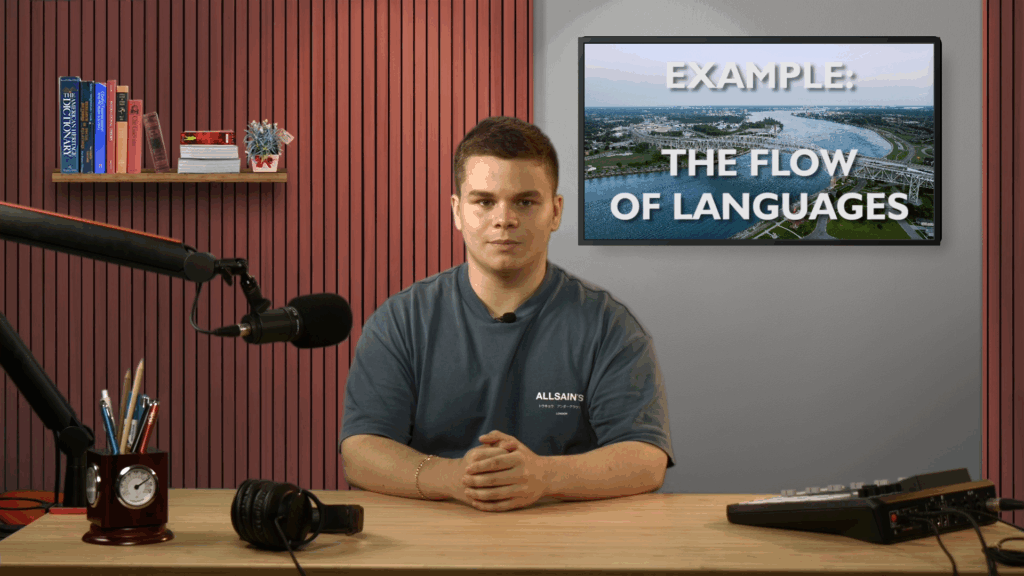
The tutorials are divided into different sections, each containing a series of video lessons. The sections cover:
- Basic knowledge of audio technology
- Technical foundations of podcast creation
- Planning and conceptualizing a podcast
- Hosting a podcast • Public speaking skills
- Marketing and distribution (including hosting platforms)
You can view all videos here:
https://www.youtube.com/@StudentsVoices-EU
Next project stop: Antalya – Creative podcast production
As part of the Erasmus+ project, young people and their educators from five countries came together in Antalya (Turkey) to explore the world of podcasting.
The goal was to strengthen media literacy and tell personal stories creatively. Participants used the video tutorials on podcast production as a reference. They had to watch all the tutorials, answer related questions, and apply the knowledge in their own productions.
In the workshops, they learned everything from idea development to writing scripts, recording, and editing podcasts. The result: fascinating contributions on topics like culture, new media, and youth. In addition to technical skills and scriptwriting, intercultural exchange played a central role—along with new friendships!
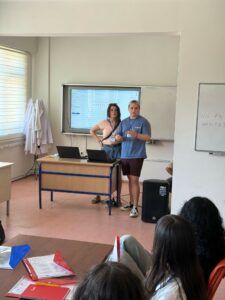
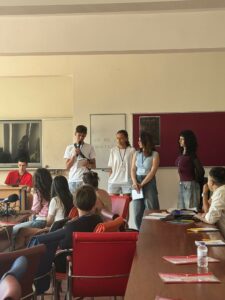
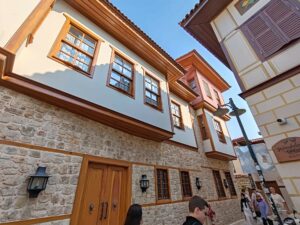
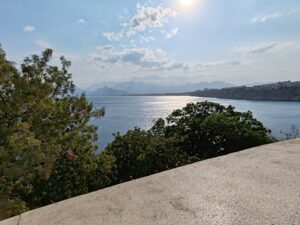
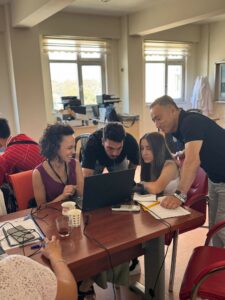
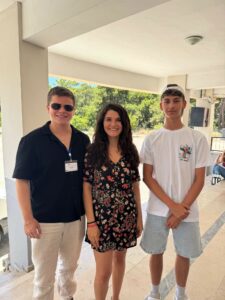
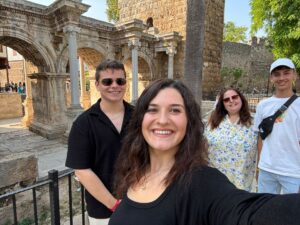

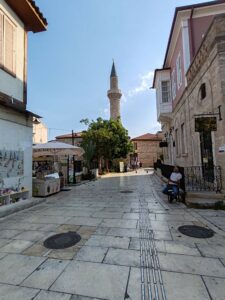
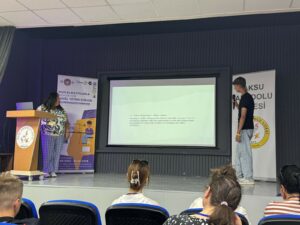
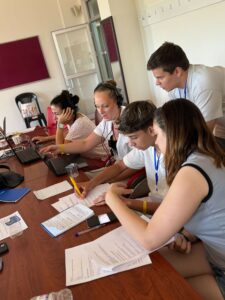
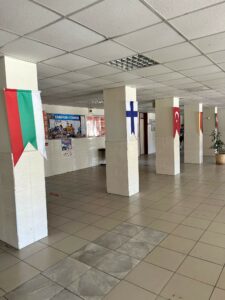
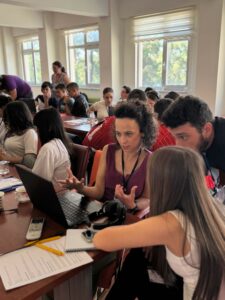
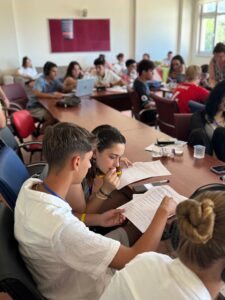
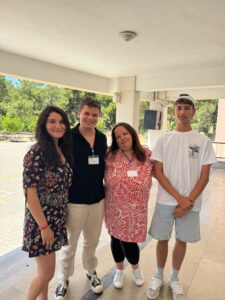
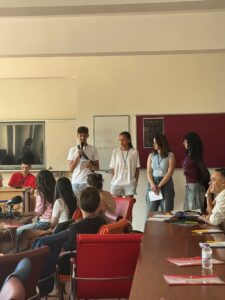
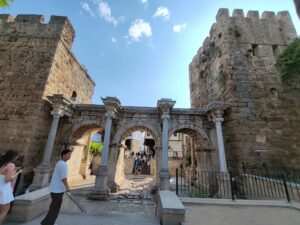
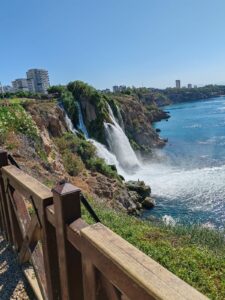
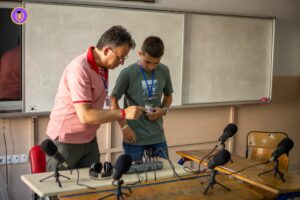
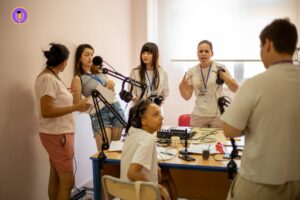
Antalya, Türkiye’nin Akdeniz kıyısında çok renkli cok canli ve tarihi açıdan ilginç bir şehir. Antalya, çok uzun zaman önce de önemli bir şehir olarak biliniyordu. Bunu bugün hâlâ görebileceğiniz birçok tarihi yer eski yapilar ve müzeler var.
En çok etkilendiğim yer Kaleiçi oldu. Kaleiçi, eski duvarların içinde bir mahalle. Orada Dar sokaklar , kücük renkli evler ve güzel kafeler var. Akşam olunca sokaklar insanlarla doluyor, müzik çalıyor, cok güzel bir ortam oluyor.
Benim için özel bir yer de Hadrian Kapısı’ydı. Bu kapı, yaklaşık bin sekiz yüz yıl önce yapılmış. Roma İmparatoru Hadrian Antalya’ya gelince onun için yapılmış. Kapı hâlâ çok iyi durumda ve Antalya’nın o zamanlar ne kadar önemli bir şehir olduğunu gösteriyor.
Antalya Arkeoloji Müzesi’nde de Hadrian’ın heykelini gördük. Müzede Roma döneminden kalma birçok heykeller vardi.
Erasmus+ projesiyle farklı ülkelerden öğrencilerle buluştuk. Finlandiya, Bulgaristan, Portekiz, Türkiye ve Almanya’dan okullar vardı.
Her okulun kendine özgü sistemi var. Türkiye’de ilkokul 4 yıl sürüyor, sonra ortaokula geçiliyor. Berlin’de ise ilkokul 6 yıl. Türkiye’de birçok okulda öğrenciler üniforma giyiyor, Almanya’da ise böyle bir kural yok.
Farklı ülkelerin okul sistemlerini görmek çok ilginçti. Özellikle günlük okul hayatı hakkında konuşmak, ne kadar farklı yaklaşımlar olduğunu görmek ve birbirimizden bir şeyler öğrenmek çok güzeldi.
Podcast example: “Games and Cultures”
Ibrahim and Firas were sitting opposite each other playing chess. Both played thoughtfully and with concentration—each one determined to win. In the end, Ibrahim won. He reached checkmate. Firas’s king could no longer move. Ibrahim had consistently challenged Firas. In the end, it paid off. In chess, however, defensive strategies can also be effective.
Podcast “Travel Experiences”
The Portuguese explorer Ferdinand Magellan completed the first circumnavigation of the world in the 16th century. He set sail with five ships and 270 crew members. This curiosity about other countries still exists today. People travel to discover new cultures and languages.
Bali, Japan, Brazil, or Spain—traveling is fun! As Berlin writer Bruno Bürgel once said: “The passion for travel is the wisest vice known to man.” Thanks to cheap flights, modern transportation, and digital booking platforms, even people with smaller budgets can explore other countries. Information about destinations, accommodations, and cultures is just a click away. Travel is no longer just a luxury—it has become a part of modern lifestyle.
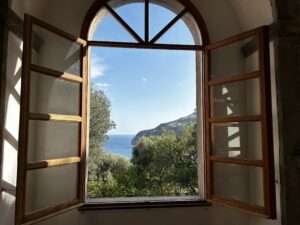
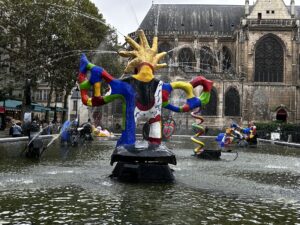
Bali, Japan, Brazil, or Spain—traveling is fun!
As Berlin writer Bruno Bürgel once said: “The passion for travel is the wisest vice known to man.”.
Thanks to cheap flights, modern transportation, and digital booking platforms, even people with smaller budgets can explore other countries. Information about destinations, accommodations, and cultures is just a click away. Travel is no longer just a luxury—it has become a part of modern lifestyle.
Podcast about Traditions, Festivals, and Rituals
Why are traditions, festivals, and rituals so important?
In our fast-paced daily lives, and with modern technology constantly advancing, the significance of traditional festivals remains undeniable. Festivals passed down through generations offer deep insights into a people’s culture and connect individuals in unique and meaningful ways. They are also key to fostering social cohesion and a sense of belonging.

Dubai Chocolate – A taste everyone loves
Dubai chocolate is something very special, with a unique flavor—especially due to its pistachio filling, which makes it a true highlight. Many people first heard about it on social media before trying it themselves.
In recent years, there has been a trend: brands increasingly use social media to promote their products—often via influencers and eye-catching visuals. Dubai chocolate is often portrayed as part of a luxurious lifestyle—with images of exotic destinations and wealthy individuals. This fuels the desire to own such products as status symbols. This marketing strategy fits perfectly with platforms like Instagram, where visuals and presentation are key. It’s not just about the product, but how it’s shown and the mood it creates.
